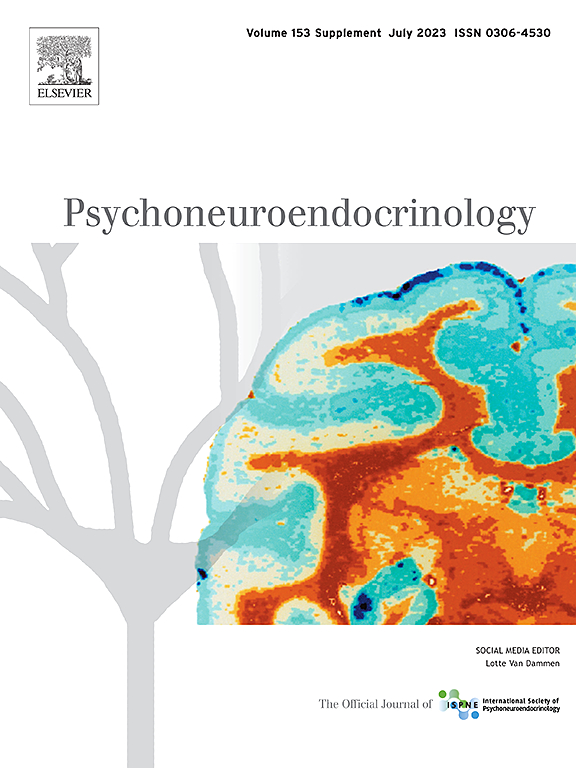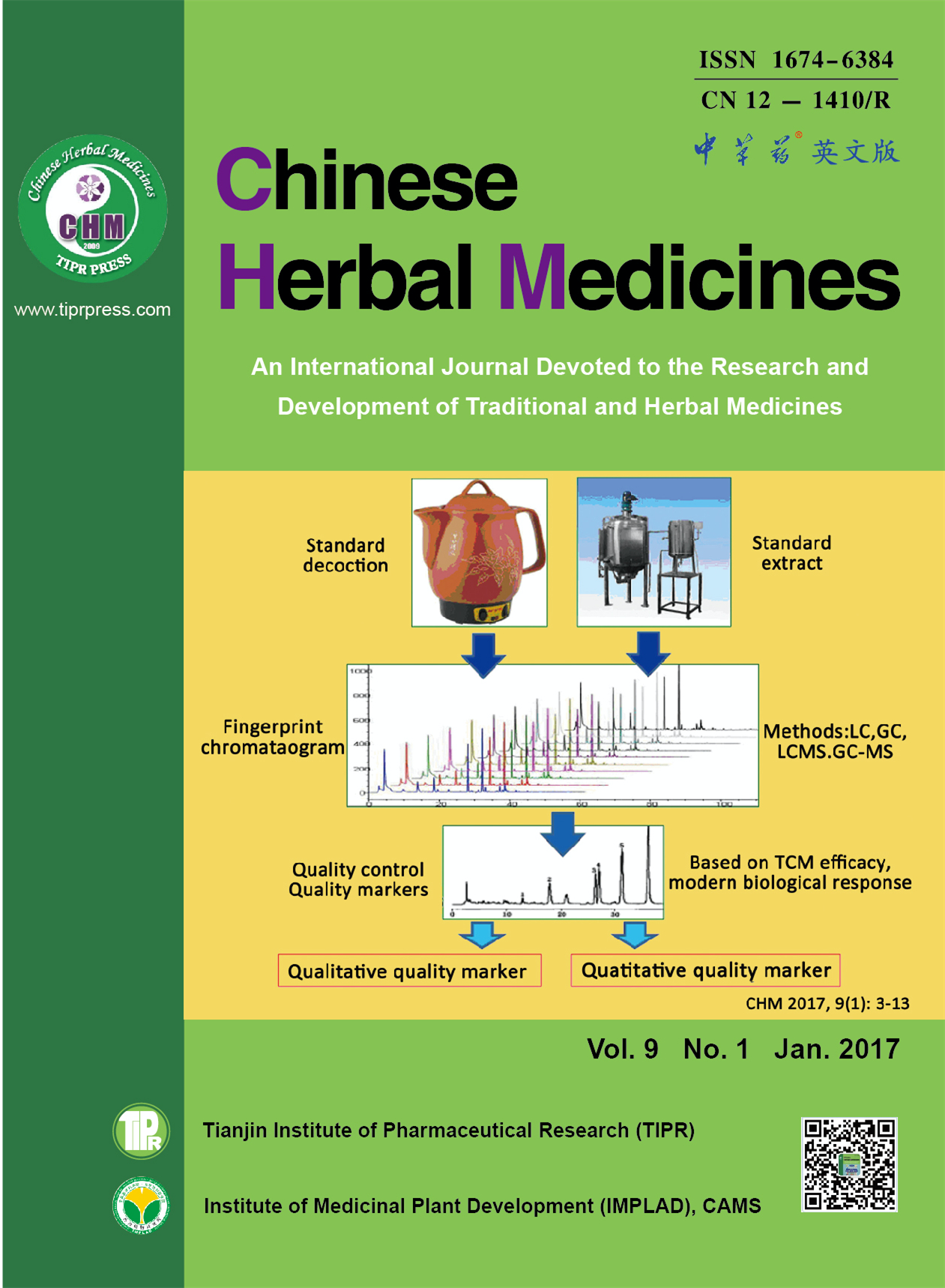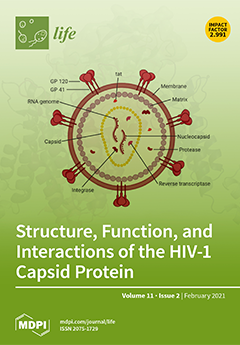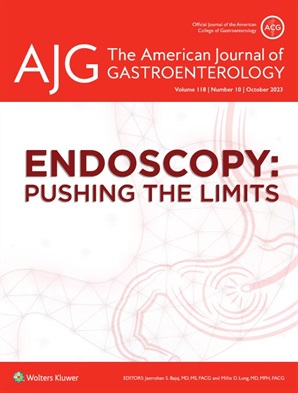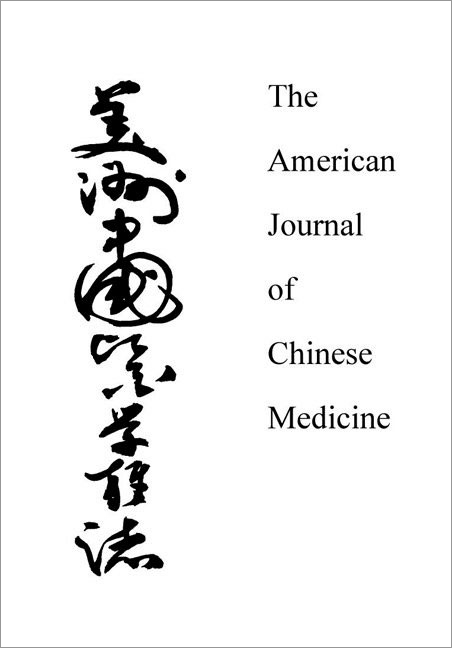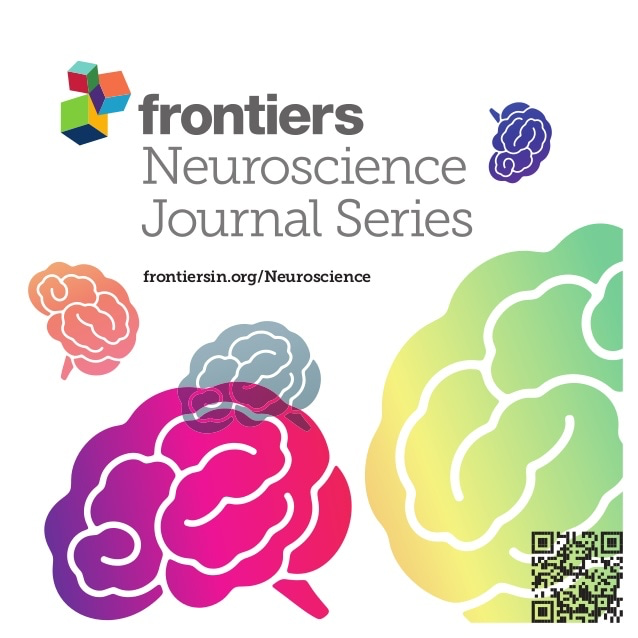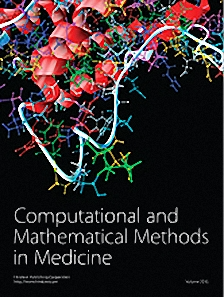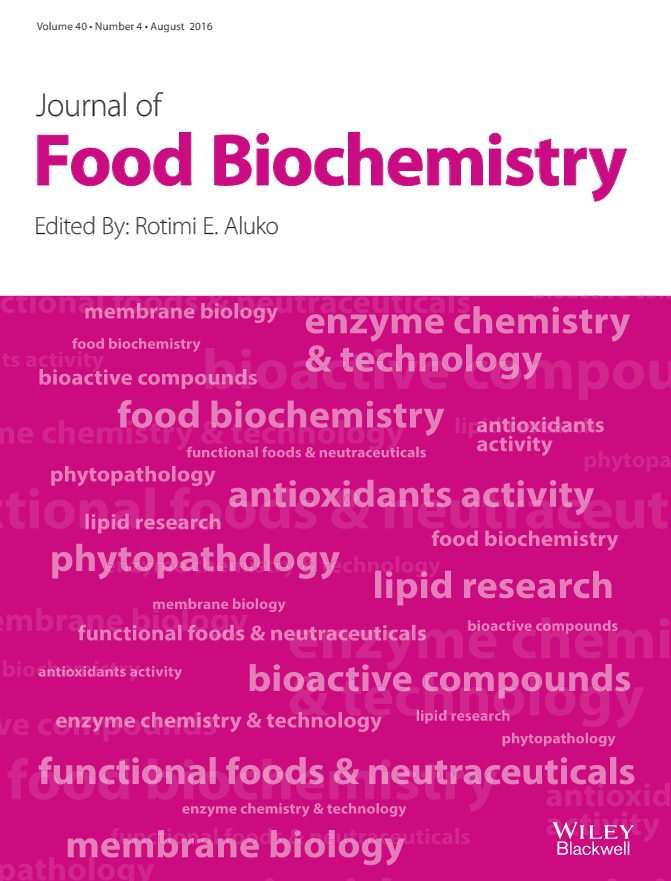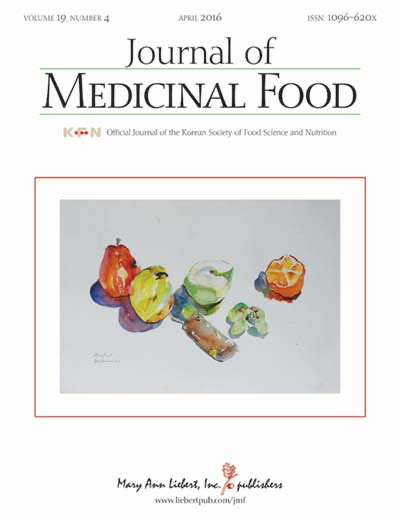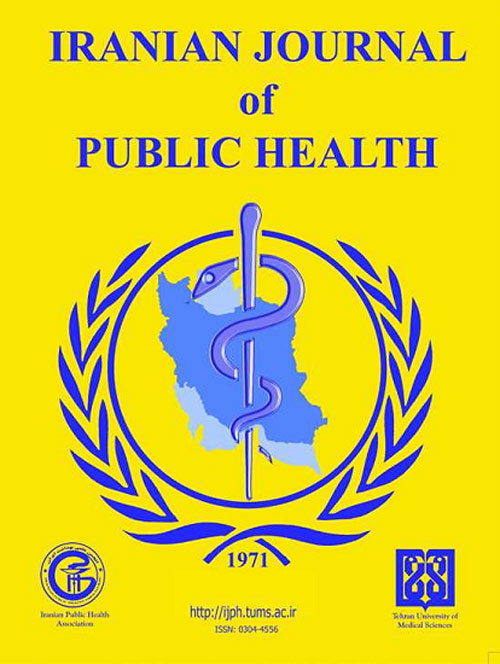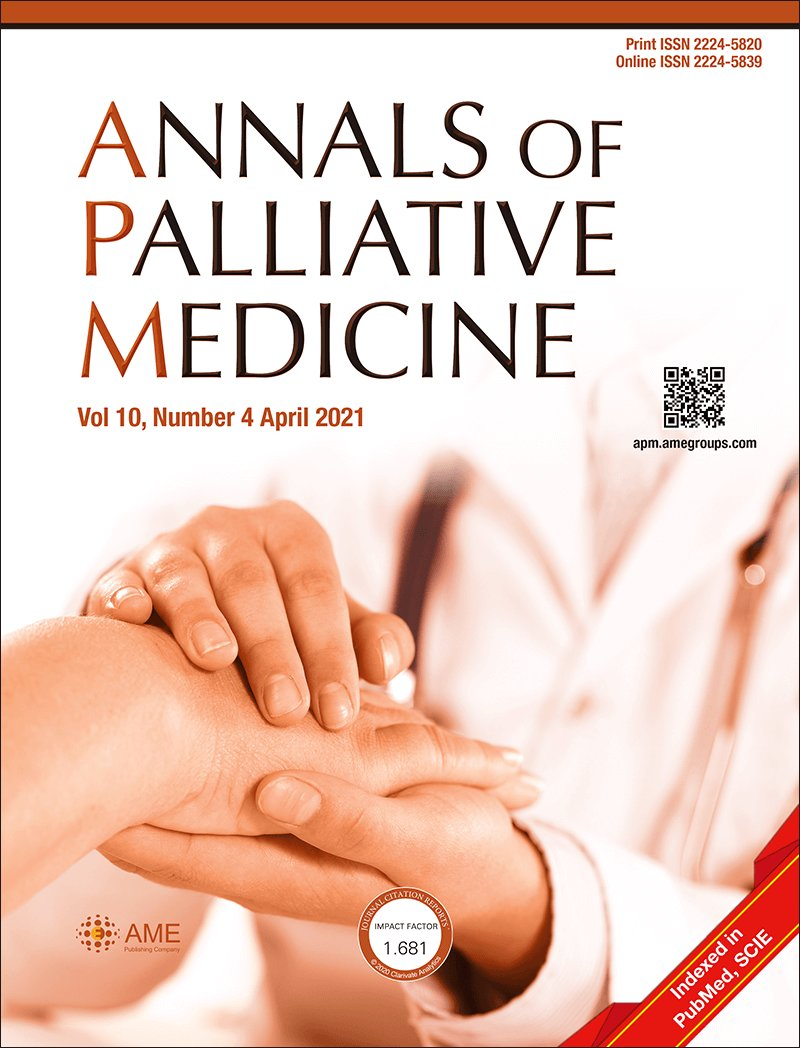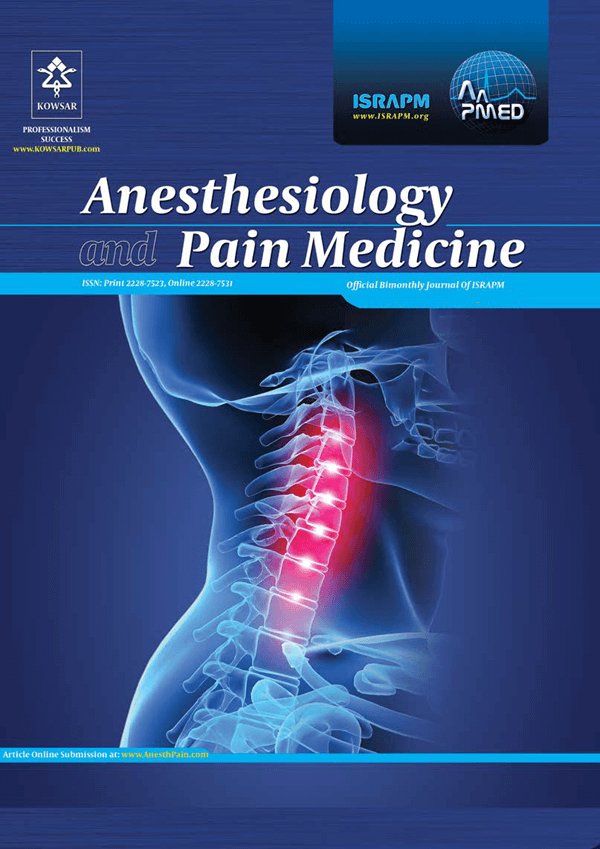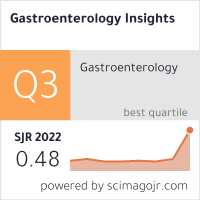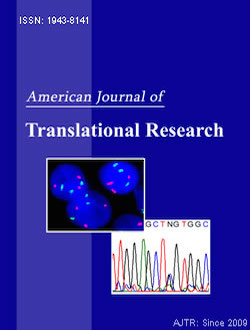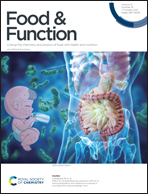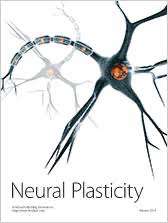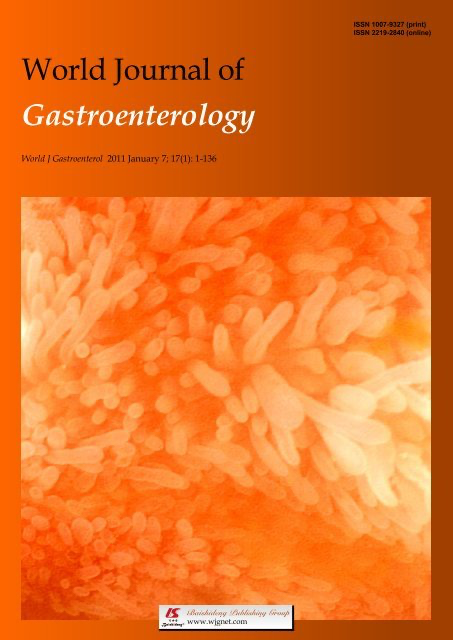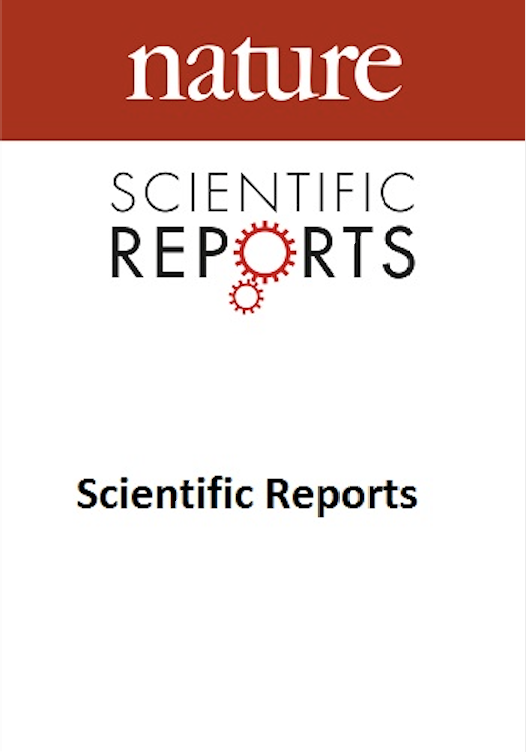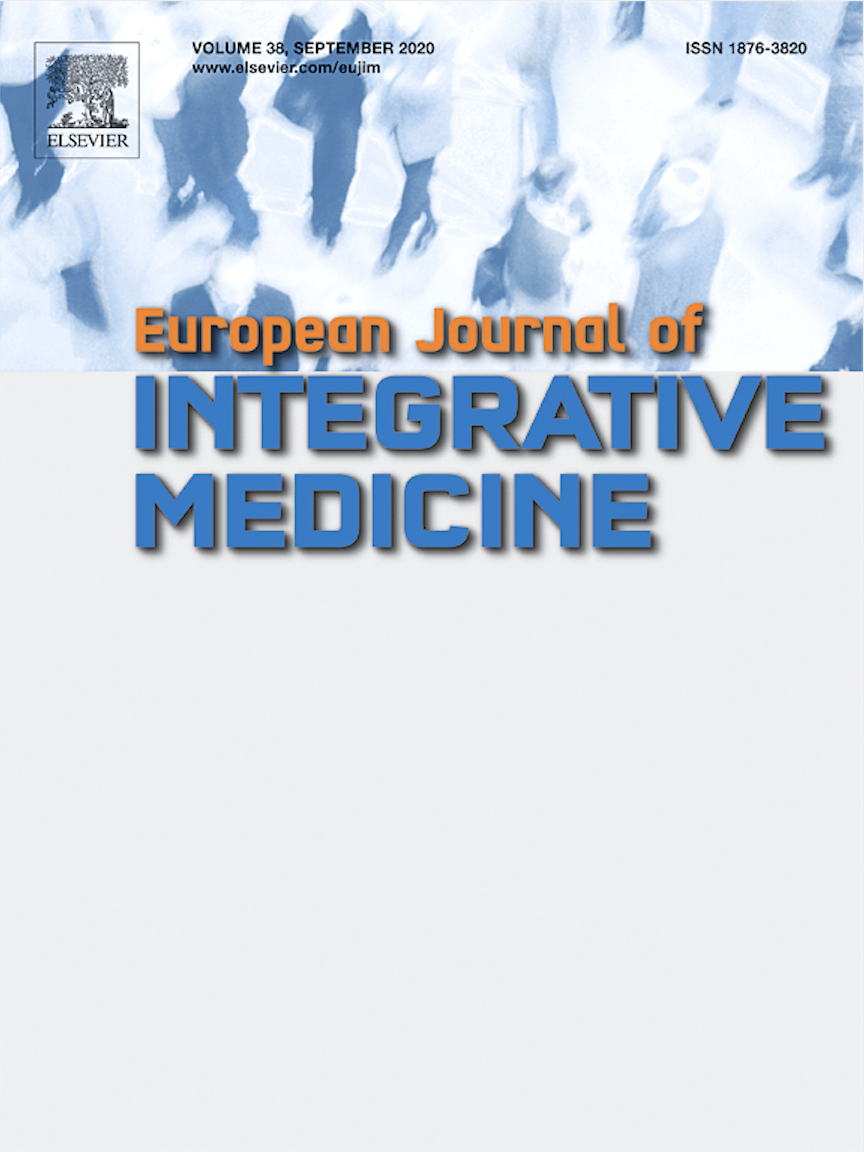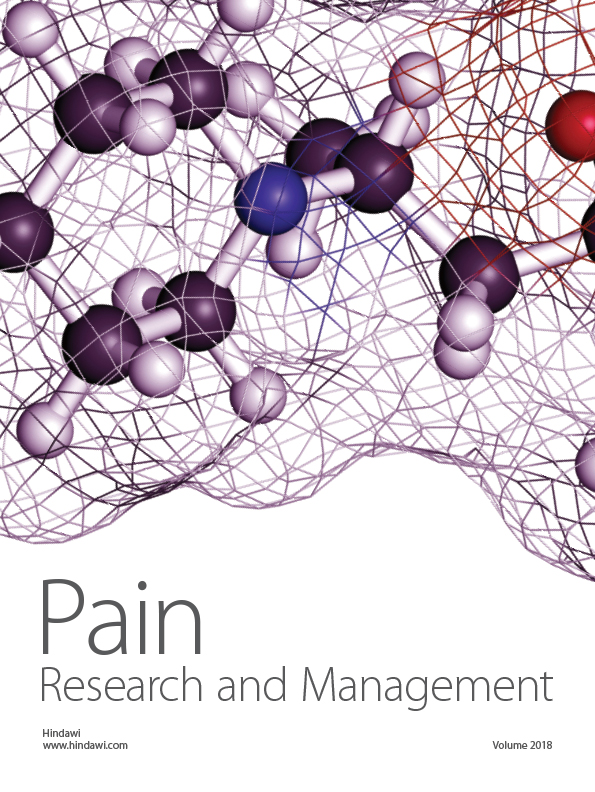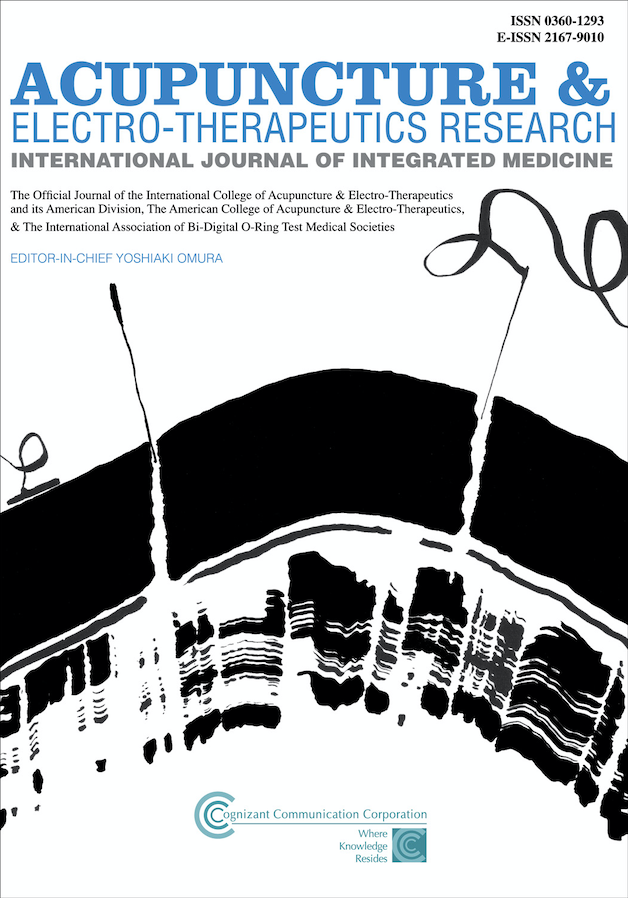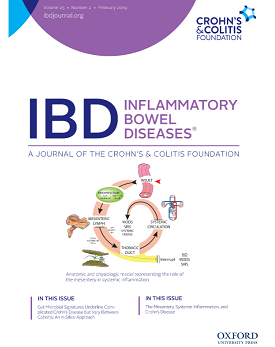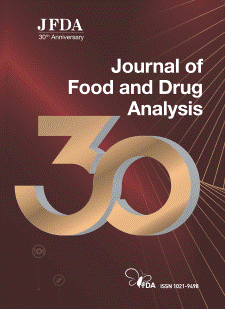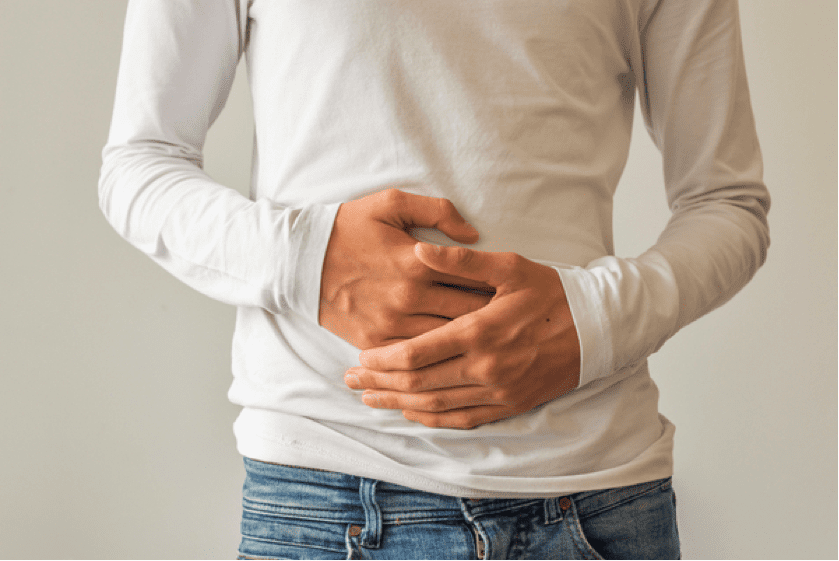
Acupuncture for Digestive Health & Bowel Diseases.
There are many types, patterns and causes of gastrointestinal symptoms. Common symptoms include stomach ulcers and acid reflux, bloating, hernias, diarrhoea and constipation as well as food intolerances.
Abdominal pain is one of the most frequent reasons for visiting a doctor or emergency department. Irritable bowel syndrome (IBS) causes abdominal pain, bloating and alternating constipation and diarrhoea. Crohn's disease and ulcerative colitis are inflammatory bowel diseases which cause symptoms such as diarrhoea and abdominal pain. Regular colonoscopy screening from the age of 50 years is the best way to detect and prevent bowel cancer.
What does the research say?
The following insights are obtained from systematic reviews and analysis of clinical trials investigating the efficacy of Chinese medicine and acupuncture for digestive health & bowel diseases.
2024 Psychoneuroendocrinology
Peptic ulcers may be prevented and cured by well-chewed food rich in vegetable fibers and fermented milk products, which increase protective salivary mucus and decrease damaging bile flow.
The research conducted a review of epidemiologic studies focusing on the variations of diet and eating patterns related to the prevalence of peptic ulcer disease across various communities. The effects of dietary patterns were assessed on saliva, gastric juice, and bile. The role of bile was specifically examined in the pathogenesis of peptic ulcer, with the argument that it, rather than hydrochloric acid, played a causal role. The role of saliva in preventing peptic ulcers was emphasized, particularly the protective nature of salivary mucus which is swallowed with food.
The study then suggested the types of diets that can help prevent peptic ulcers, including those rich in roughage, cellulose, vegetable fibers, and fermented milk products such as ghee and yogurt. The research posited this kind of diet can increase the amount of salivary mucus and consequently decrease the flow rate of harmful bile. The study also noted that these insights showed minor changes in diet, and a slower pace of consumption could lead to substantial health benefits.
Moving from dietary composition to eating behaviors, it was suggested that food should be well-masticated to ensure these beneficial digestive processes have an opportunity to occur. At the same time, the research made the case that specific dietary components, particularly short-chain fatty acids like those found in milk products, can retard gall bladder contraction, thereby reducing the amount of bile entering the duodenal lumen. This secondary action further contributes to the potential prevention of peptic ulcers.
New approaches to the pathogenesis of peptic ulcer based on the protective action of saliva with special reference to roughage, vegetable fibre and fermented milk products Malhotra SL
2024 Nutrients
Carrageenan, a common food additive, potentially exacerbates Inflammatory Bowel Disease (IBD) symptoms by altering gut microbiota, inducing intestinal permeability, and triggering inflammation.
The study involved a comprehensive literature review, where the researchers carried out an in-depth analysis of past studies evaluating carrageenan's impact on gut health, particularly in relation to Inflammatory Bowel Disease (IBD). Using predefined search terms, they scoured medical and scientific databases, MEDLINE and SCOPUS. They considered research focusing on carrageenan's effect on the gut microbiota, intestinal permeability, inflammatory processes, its relationship with cancer, and its role as a food additive in the context of autoimmune diseases.
The review divulged that degraded carrageenan, as used in animal studies, appeared to promote intestinal ulceration and inflammation, suggesting a potential risk in exacerbating IBD. Additionally, carrageenan also appeared to disrupt gut microbiota, reducing bacterial diversity therein, and increased intestinal permeability, which in turn could possibly contribute to 'leaky gut' syndrome. Interestingly, some studies suggested a possible anti-cancer effect, since carrageenan might inhibit the growth of cancer cells by affecting cell cycle progression. Besides, the additive seemed to elevate glucose intolerance and insulin resistance.
Carrageenan in the Diet: Friend or Foe for Inflammatory Bowel Disease? Kimilu N, Gładyś-Cieszyńska K, Pieszko M, Mańkowska-Wierzbicka D, Folwarski M
2023 Chinese Herbal Medicines
Chinese herbal medicines could potentially relieve ulcerative colitis by moderating the gut microbiota and intestinal immunity loop.
The study emphasizes on the possible use of Chinese herbal medicines, which include single herbs, herbal formulas and derived constituents, in treating ulcerative colitis (UC), a recurring inflammatory bowel disease. With a focus on how these medicines interact with and modify the gut microbiota, the mechanism involves regulating the intestinal homeostasis to counter UC. It deals with balancing microbial dysbiosis, or the imbalance of microbes in the body, and abnormal gut immunity, two key initiators of inflammatory responses in UC.
The paper reviews several clinical trials which have been conducted, all exhibiting the effectiveness of Chinese herbal medicines on patients diagnosed with UC. In the trials, these derived substances have shown a protective effect against UC, offering the potential possibility of them being explored as conventional methods of UC treatments in the future. Not every trial has resulted in absolute success, but the overall results are promising and indicate a robust potential direction for UC treatment science.
Chinese herbal medicines for treating ulcerative colitis via regulating gut microbiota-intestinal immunity axis Yang Y, Wang Y, Zhao L, Wang F, Li M, Wang Q, Luo H, Zhao Q, Zeng J, Zhao Y, Du F, Chen Y, Shen J, Wei S, Xiao Z, Wu X
2023 Life
Seaweed polysaccharides, especially those found in the cell walls of marine algae, hold significant potential as a natural, complementary treatment for Inflammatory Bowel Disease (IBD).
The study analysed the therapeutic properties of sulfated polysaccharides, including carrageenan in red algae, ulvan in green algae, and fucoidan in brown algae, which are abundantly present in the cell walls of marine algae. Addressing key IBD pathologic treatment targets, the research explored polysaccharides' effects on inflammatory cytokines, adhesion molecules, intestinal epithelial cells, and intestinal microflora. These therapeutic targets were analyzed with an emphasis on utilizing natural substances like seaweed polysaccharides for improving IBD treatment efficacy.
Building upon the theory of a nutritional preventive mechanism for IBD and the restoration of intestinal health, the findings underscore the potent therapeutic capabilities of these natural compounds. Algal polysaccharides were found to have immense potential as a complementary treatment for IBD. It was suggested that these natural substances can be developed into effective drugs and functionally nutritious products, emphasizing a natural approach towards managing this global public health issue.
The Role of Seaweed Polysaccharides in Gastrointestinal Health: Protective Effect against Inflammatory Bowel Disease Liyanage NM, Nagahawatta DP, Jayawardena TU, Jeon YJ
2023 Life
Seaweed polysaccharides, especially those found in the cell walls of marine algae, hold significant potential as a natural, complementary treatment for Inflammatory Bowel Disease (IBD).
The study analysed the therapeutic properties of sulfated polysaccharides, including carrageenan in red algae, ulvan in green algae, and fucoidan in brown algae, which are abundantly present in the cell walls of marine algae. Addressing key IBD pathologic treatment targets, the research explored polysaccharides' effects on inflammatory cytokines, adhesion molecules, intestinal epithelial cells, and intestinal microflora. These therapeutic targets were analyzed with an emphasis on utilizing natural substances like seaweed polysaccharides for improving IBD treatment efficacy.
Building upon the theory of a nutritional preventive mechanism for IBD and the restoration of intestinal health, the findings underscore the potent therapeutic capabilities of these natural compounds. Algal polysaccharides were found to have immense potential as a complementary treatment for IBD. It was suggested that these natural substances can be developed into effective drugs and functionally nutritious products, emphasizing a natural approach towards managing this global public health issue.
The Role of Seaweed Polysaccharides in Gastrointestinal Health: Protective Effect against Inflammatory Bowel Disease Liyanage NM, Nagahawatta DP, Jayawardena TU, Jeon YJ
2022 Medicine
Acupuncture covering the depth ranges for BL18, BL20, and BL22 and their targeting of various tissues potentially alleviates sympathetic nerve issues and ischemia with assistance of the diaphragm.
Review analyzed 115 articles on needling depth and angle for back-shu acupuncture points in GI diseases. Key findings include the depth range for BL18, BL20, and BL22 points, their targeting of muscles, nerves, and diaphragmatic tissues, and the potential for acupuncture to alleviate sympathetic nerve overexcitability and ischemia while emphasizing the diaphragm's role in digestive function.
Anatomical structures and needling method of the back-shu points BL18, BL20, and BL22 related to gastrointestinal organs: A PRISMA-compliant systematic review of acupoints and exploratory mechanism analysis Cho Y, Han Y, Kim Y, Han S, Oh K, Chae H, Hongmin C, Ryu M
2022 American Journal of Gastroenterology
Consuming green kiwifruits is associated with a clinically relevant increase of ≥ 1.5 complete spontaneous bowel movements per week in those experiencing constipation.
Participants included healthy controls (n = 63), patients with functional constipation (FC, n = 60), and patients with constipation-predominant irritable bowel syndrome (IBS-C, n = 61) randomly assigned to consume 2 green kiwifruits or psyllium (7.5 g) per day for 4 weeks, followed by a 4-week washout, and then the other treatment for 4 weeks. The primary outcome was the number of complete spontaneous bowel movements (CSBM) per week. Secondary outcomes included GI comfort which was measured using the GI symptom rating scale, a validated instrument. Data (intent-to-treat) were analyzed as difference from baseline using repeated measures analysis of variance suitable for AB/BA crossover design.
Consumption of green kiwifruit was associated with a clinically relevant increase of ≥ 1.5 CSBM per week (FC; 1.53, P < 0.0001, IBS-C; 1.73, P = 0.0003) and significantly improved measures of GI comfort (GI symptom rating scale total score) in constipated participants (FC, P < 0.0001; IBS-C, P < 0.0001). No significant adverse events were observed.
Consumption of 2 Green Kiwifruits Daily Improves Constipation and Abdominal Comfort—Results of an International Multicenter Randomized Controlled Trial Gearry R, Fukudo S, Barbara G, Kuhn-Sherlock B, Ansell J, Blatchford P, Eady S, Wallace A, Butts C, Cremon C, Barbaro MR, Pagano I, Okawa Y, Muratubaki T, Okamoto T, Fuda M, Endo Y, Kano M, Kanazawa M, Nakaya N, Nakaya K, Drummond L
2022 American Journal of Gastroenterology
Consuming green kiwifruits is associated with a clinically relevant increase of ≥ 1.5 complete spontaneous bowel movements per week in those experiencing constipation.
Participants included healthy controls (n = 63), patients with functional constipation (FC, n = 60), and patients with constipation-predominant irritable bowel syndrome (IBS-C, n = 61) randomly assigned to consume 2 green kiwifruits or psyllium (7.5 g) per day for 4 weeks, followed by a 4-week washout, and then the other treatment for 4 weeks. The primary outcome was the number of complete spontaneous bowel movements (CSBM) per week. Secondary outcomes included GI comfort which was measured using the GI symptom rating scale, a validated instrument. Data (intent-to-treat) were analyzed as difference from baseline using repeated measures analysis of variance suitable for AB/BA crossover design.
Consumption of green kiwifruit was associated with a clinically relevant increase of ≥ 1.5 CSBM per week (FC; 1.53, P < 0.0001, IBS-C; 1.73, P = 0.0003) and significantly improved measures of GI comfort (GI symptom rating scale total score) in constipated participants (FC, P < 0.0001; IBS-C, P < 0.0001). No significant adverse events were observed.
Consumption of 2 Green Kiwifruits Daily Improves Constipation and Abdominal Comfort—Results of an International Multicenter Randomized Controlled Trial Gearry R, Fukudo S, Barbara G, Kuhn-Sherlock B, Ansell J, Blatchford P, Eady S, Wallace A, Butts C, Cremon C, Barbaro MR, Pagano I, Okawa Y, Muratubaki T, Okamoto T, Fuda M, Endo Y, Kano M, Kanazawa M, Nakaya N, Nakaya K, Drummond L
2022 The American Journal of Chinese Medicine
Acupuncture shows promising results in managing autoimmune diseases by potentially regulating immune responses.
The methodology of the study involved a comprehensive review of how acupuncture, a form of traditional Chinese medicine, may be employed as a treatment method for autoimmune diseases such as multiple sclerosis, rheumatoid arthritis, and inflammatory bowel disease. The research was based on existing knowledge and accumulating data, investigating the role of acupuncture in regulating immune responses during these conditions.
The discussion of the results revealed that acupuncture showed promise in managing these diseases. It was noted that the positive outcomes observed might be linked to the potential of acupuncture to regulate abnormal immune responses which are characteristic of autoimmune diseases. Despite the fact that the precise mechanism through which this achieved is not fully understood, the findings indicate a promising alternative method of managing autoimmune conditions.
Therapeutic Effect and Mechanism of Acupuncture in Autoimmune Diseases Jing Wang, Fangyi Zhu, Wei Huang, Zhengyi Chen, Ping Zhao, Yanting Lei, Yumei Liu, Xijun Liu, Bo Sun, Hulun Li
2022 Frontiers in Pharmacology
Xiao Yao San can improve symptoms and reduce recurrence rates in patients with disorders of gut-brain interaction.
The paper's methodology involved a meta-analysis of randomized controlled trials found in seven databases, up until November 22, 2021. The trials, which totaled 48 all together, were included to determine the efficacy of Xiao-Yao-San in treating disorders of gut-brain interaction (previously known as functional gastrointestinal disorders). A range of measures, including therapeutic efficacy, symptom score, Self-Rating Anxiety Scale score, Self-Rating Depression Scale score, and the recurrence rate, were analysed using both random-effects and fixed-effects models, as well as trial sequential analysis.
In terms of results, Xiao-Yao-San showed a marked improvement in the effective rate of managing disorders of gut-brain interaction compared to western drugs, both when used alone and in combination with western medicine. The paper also found the treatment notably reduced symptom scores, anxiety scores, and depression scores for patients with the disorder. Further, instances of recurrence were also reduced. Overall, Xiao-Yao-San was well tolerated and no serious adverse events were reported in any of the trials included in this analysis.
Efficacy and Safety of Chinese Herbal Medicine Xiao Yao San in Functional Gastrointestinal Disorders: A meta-Analysis and Trial Sequential Analysis of Randomized Controlled Trials Liu Q, Shi Z, Zhang T, Jiang T, Luo X, Su X, Yang Y and Wei W
2022 Frontiers in Pharmacology
Xiao Yao San can improve symptoms and reduce recurrence rates in patients with disorders of gut-brain interaction.
The paper's methodology involved a meta-analysis of randomized controlled trials found in seven databases, up until November 22, 2021. The trials, which totaled 48 all together, were included to determine the efficacy of Xiao-Yao-San in treating disorders of gut-brain interaction (previously known as functional gastrointestinal disorders). A range of measures, including therapeutic efficacy, symptom score, Self-Rating Anxiety Scale score, Self-Rating Depression Scale score, and the recurrence rate, were analysed using both random-effects and fixed-effects models, as well as trial sequential analysis.
In terms of results, Xiao-Yao-San showed a marked improvement in the effective rate of managing disorders of gut-brain interaction compared to western drugs, both when used alone and in combination with western medicine. The paper also found the treatment notably reduced symptom scores, anxiety scores, and depression scores for patients with the disorder. Further, instances of recurrence were also reduced. Overall, Xiao-Yao-San was well tolerated and no serious adverse events were reported in any of the trials included in this analysis.
Efficacy and Safety of Chinese Herbal Medicine Xiao Yao San in Functional Gastrointestinal Disorders: A meta-Analysis and Trial Sequential Analysis of Randomized Controlled Trials Liu Q, Shi Z, Zhang T, Jiang T, Luo X, Su X, Yang Y and Wei W
2022 Frontiers in Pharmacology
Xiao Yao San can improve symptoms and reduce recurrence rates in patients with disorders of gut-brain interaction.
The paper's methodology involved a meta-analysis of randomized controlled trials found in seven databases, up until November 22, 2021. The trials, which totaled 48 all together, were included to determine the efficacy of Xiao-Yao-San in treating disorders of gut-brain interaction (previously known as functional gastrointestinal disorders). A range of measures, including therapeutic efficacy, symptom score, Self-Rating Anxiety Scale score, Self-Rating Depression Scale score, and the recurrence rate, were analysed using both random-effects and fixed-effects models, as well as trial sequential analysis.
In terms of results, Xiao-Yao-San showed a marked improvement in the effective rate of managing disorders of gut-brain interaction compared to western drugs, both when used alone and in combination with western medicine. The paper also found the treatment notably reduced symptom scores, anxiety scores, and depression scores for patients with the disorder. Further, instances of recurrence were also reduced. Overall, Xiao-Yao-San was well tolerated and no serious adverse events were reported in any of the trials included in this analysis.
Efficacy and Safety of Chinese Herbal Medicine Xiao Yao San in Functional Gastrointestinal Disorders: A meta-Analysis and Trial Sequential Analysis of Randomized Controlled Trials Liu Q, Shi Z, Zhang T, Jiang T, Luo X, Su X, Yang Y and Wei W
2022 Frontiers in Neuroscience
Chinese herbal medicine shows promising and safe outcomes in relieving functional dyspepsia symptoms and associated psychological disorders.
The methodology for this research involved a comprehensive search across various libraries and databases, such as PubMed, Embase, Cochrane Library, Web of Science, and various Chinese data sources, seeking randomized controlled trials where functional dyspepsia was treated with Chinese herbal medicine. The aim was to assess the efficacy and safety of this type of treatment for functional dyspepsia. Two researchers independently conducted each stage of the process, from searching the sources, screening the documents, extracting data, and assessing risk biases within the included studies. They used RevMan 5.4 software to do a meta-analysis of the selected research materials.
The discussion of their findings showed that treatment with Chinese herbal medicine significantly alleviated the symptoms of functional dyspepsia, compared to both a placebo group and a group treated with traditional prokinetic agents and flupentixol melitracen. Patients treated with Chinese herbal medicine reported higher total effective rates and lower total symptom scores, along with smaller depression and anxiety scores. The symptoms of functional dyspepsia, in this case, were improved more successfully with Chinese herbal medicine than with other treatment types, without any significant adverse reactions.
Chinese Herbal Medicine for Functional Dyspepsia With Psychological Disorders: A Systematic Review and Meta-Analysis Luo X, Wang L, Fang S, Qing X, Jiang T, Yang Y, Su X, Wei W
2022 Frontiers in Medicine
Traditional Chinese medicine therapies, like acupuncture and moxibustion, effectively alleviate irritable bowel syndrome with diarrhea symptoms, and reduce recurrence rates.
Adhering to the guidelines for systematic reviews, multiple databases including PubMed and Cochrane Library, and several Chinese databases were thoroughly searched. The focus was randomized controlled trials that compared traditional Chinese external therapies with western medicine for irritable bowel syndrome with diarrhea up until the end of 2021. Two authors were independently responsible for screening, data extraction and study assessment. Study quality assessment involved both the Jadad scale and Cochrane Collaborative's risk of bias tool. Meta-analysis was performed on the data collated using Review Manager software.
The gathered data revealed that of the twenty-one studies examined, including a total of 1,862 subjects, acupuncture and moxibustion were the most prevalent external therapies. The results of the meta-analysis indicated that in comparison to the control group, the experimental group demonstrated marked improvement. Notably, the experimental group had superior clinical effectiveness rates, better clinical cure rates, and reduced recurrence. Additionally, there was significant improvement in irritable bowel syndrome related quality of life within the experimental group. Despite these promising results, the publication bias of the included studies was noted as a potential limitation.
External therapy of traditional Chinese medicine for treating irritable bowel syndrome with diarrhea: A systematic review and meta-analysis Wei X, Wen Y, Wei Y, Liang X, Ma X, Zhang B, Tang X
2022 Frontiers in Medicine
Traditional Chinese medicine therapies, like acupuncture and moxibustion, effectively alleviate irritable bowel syndrome with diarrhea symptoms, and reduce recurrence rates.
Adhering to the guidelines for systematic reviews, multiple databases including PubMed and Cochrane Library, and several Chinese databases were thoroughly searched. The focus was randomized controlled trials that compared traditional Chinese external therapies with western medicine for irritable bowel syndrome with diarrhea up until the end of 2021. Two authors were independently responsible for screening, data extraction and study assessment. Study quality assessment involved both the Jadad scale and Cochrane Collaborative's risk of bias tool. Meta-analysis was performed on the data collated using Review Manager software.
The gathered data revealed that of the twenty-one studies examined, including a total of 1,862 subjects, acupuncture and moxibustion were the most prevalent external therapies. The results of the meta-analysis indicated that in comparison to the control group, the experimental group demonstrated marked improvement. Notably, the experimental group had superior clinical effectiveness rates, better clinical cure rates, and reduced recurrence. Additionally, there was significant improvement in irritable bowel syndrome related quality of life within the experimental group. Despite these promising results, the publication bias of the included studies was noted as a potential limitation.
External therapy of traditional Chinese medicine for treating irritable bowel syndrome with diarrhea: A systematic review and meta-analysis Wei X, Wen Y, Wei Y, Liang X, Ma X, Zhang B, Tang X
2022 Computational and Mathematical Methods in Medicine
Acupuncture combined with moxibustion showed the best outcomes in terms of efficacy and quality of life improvement for adults with irritable bowel syndrome complicated with diarrhea.
The study was conducted by searching major databases, including PubMed, The Cochrane Library, Embase, and database from China, for randomized controlled trials. These trials explored the effects of acupuncture and moxibustion on individuals suffering from irritable bowel syndrome complicated with diarrhea. The selected studies underwent a rigorous bias assessment and their data were analyzed using Stata 16.0 statistical software.
The analysis encompassed 21 studies overall, considering 1626 patients undergoing 8 different therapeutic measures. The study found that treatments such as acupuncture, warming needle moxibustion, and a combination of acupuncture with sandwiched or heat-sensitive moxibustion revealed significantly improved outcomes when compared to the drug pinaverium bromide. On the other hand, pinaverium bromide demonstrated the lowest efficacy and effect on quality of life. The most frequently used acupuncture points were GV20, GV29, ST 25, ST37, ST36, SP6, LR3, and CV12.
Acupuncture and Moxibustion in the Treatment of Adult Diarrhea Irritable Bowel Syndrome: A Network Meta-analysis Jiang X, Guo X, Zhou J, Ye S
2022 Computational and Mathematical Methods in Medicine
Acupuncture combined with moxibustion showed the best outcomes in terms of efficacy and quality of life improvement for adults with irritable bowel syndrome complicated with diarrhea.
The study was conducted by searching major databases, including PubMed, The Cochrane Library, Embase, and database from China, for randomized controlled trials. These trials explored the effects of acupuncture and moxibustion on individuals suffering from irritable bowel syndrome complicated with diarrhea. The selected studies underwent a rigorous bias assessment and their data were analyzed using Stata 16.0 statistical software.
The analysis encompassed 21 studies overall, considering 1626 patients undergoing 8 different therapeutic measures. The study found that treatments such as acupuncture, warming needle moxibustion, and a combination of acupuncture with sandwiched or heat-sensitive moxibustion revealed significantly improved outcomes when compared to the drug pinaverium bromide. On the other hand, pinaverium bromide demonstrated the lowest efficacy and effect on quality of life. The most frequently used acupuncture points were GV20, GV29, ST 25, ST37, ST36, SP6, LR3, and CV12.
Acupuncture and Moxibustion in the Treatment of Adult Diarrhea Irritable Bowel Syndrome: A Network Meta-analysis Jiang X, Guo X, Zhou J, Ye S
2022 Journal of Food Biochemistry
Coconut water and coconut milk ameliorate the negative impacts of heat stress on gastrointestinal health by reducing oxidative stress and suppressing inflammatory responses.
The study enlisted four different temperature exposure groups of rats, namely a control group at 30 degrees Celsius, a heat-stressed group exposed to an ambiance of 40 degrees, a heat-stressed group pre-treated with coconut water, and a heat-stressed group with coconut milk. Measurements such as skin and rectal temperatures, as well as evaluations of gastrointestinal motility factors such as intestinal transit, intestinal fluid accumulation, and colonic motility, were taken before and after a two-hour heat exposure over 14 days.
Noticeable increases in gastrointestinal motility factors were observed amongst the heat-stressed rats. However, the introduction of coconut milk and water appeared to reverse these increases. Furthermore, the elevated cortisol levels and intestinal lipid peroxidation in the heat-stressed rats were significantly reduced with the introduction of both coconut products. Likewise, results showed an increase in antioxidant enzyme activities in the rats that received either coconut water or milk, in contrast to the control group. Similarly, the coconut water and milk were seen to suppress inflammatory cytokines while enhancing others. The study also noted significant improvements in intestinal morphology among heat-stressed rats treated with either coconut product.
Effect of coconut water and milk on heat stressâ€induced gastrointestinal tract dysmotility in rats: Role of oxidative stress and inflammatory response Ajeigbe KO, Oladokun OO, Owonikoko MW, Adegoke GA
2022 The American Journal of Chinese Medicine
Fresh and dried ginger displays key botanical, phytochemical and ethnopharmacological differences, which are fundamental for their specific clinical uses in treating gastrointestinal issues.
The methodology used in the research involved a retrospective comparison between Sheng Jiang (SJ, meaning fresh ginger) and Gan Jiang (GJ, meaning dried ginger), two traditional Chinese herbs. The comparison was undertaken specifically considering aspects of botany, phytochemistry, and ethnopharmacology. The research also delved into exploring the traditionally attributed use of ginger, in both its fresh and dried forms, for the treatment of gastrointestinal disorders, and its relationship with human gut microbiota - an aspect that hasn't been considered extensively previously.
The results displayed notable differences between fresh and dried ginger in terms of botany, phytochemical, and ethnopharmacological properties. Fresh and dried ginger are cultivated differently and display distinct physical appearances. This research proposed that these differences lay the foundation for how these two forms of ginger are applied clinically. Furthermore, discussing the pharmacology of gut microbiota-related gastrointestinal benefits, it is suggested that fresh and dried ginger could present innovative and potent avenues for preventing and treating gastrointestinal disorders.
Zingiber officinale: A Systematic Review of Botany, Phytochemistry and Pharmacology of Gut Microbiota-Related Gastrointestinal Benefits Lai W, Yang S, Lin X, Zhang X, Huang Y, Zhou J, Fu C, Li R, Zhang Z
2022 The American Journal of Chinese Medicine
Fresh and dried ginger displays key botanical, phytochemical and ethnopharmacological differences, which are fundamental for their specific clinical uses in treating gastrointestinal issues.
The methodology used in the research involved a retrospective comparison between Sheng Jiang (SJ, meaning fresh ginger) and Gan Jiang (GJ, meaning dried ginger), two traditional Chinese herbs. The comparison was undertaken specifically considering aspects of botany, phytochemistry, and ethnopharmacology. The research also delved into exploring the traditionally attributed use of ginger, in both its fresh and dried forms, for the treatment of gastrointestinal disorders, and its relationship with human gut microbiota - an aspect that hasn't been considered extensively previously.
The results displayed notable differences between fresh and dried ginger in terms of botany, phytochemical, and ethnopharmacological properties. Fresh and dried ginger are cultivated differently and display distinct physical appearances. This research proposed that these differences lay the foundation for how these two forms of ginger are applied clinically. Furthermore, discussing the pharmacology of gut microbiota-related gastrointestinal benefits, it is suggested that fresh and dried ginger could present innovative and potent avenues for preventing and treating gastrointestinal disorders.
Zingiber officinale: A Systematic Review of Botany, Phytochemistry and Pharmacology of Gut Microbiota-Related Gastrointestinal Benefits Lai W, Yang S, Lin X, Zhang X, Huang Y, Zhou J, Fu C, Li R, Zhang Z
2022 Journal of Medicinal Food
Omega-3 fatty acids can help prevent and manage chronic inflammatory diseases, including ulcerative colitis and rheumatoid arthritis, through influencing gut microbiota.
The study primarily encompasses a review of both experimental and clinical studies on the influence of omega-3 fatty acids on chronic inflammatory conditions, with the attention being specifically focused on those diseases with an autoimmune background. The study highlights the role of these fatty acids in maintaining bodily homeostasis, as well as the enzymatic processes they trigger within the body upon ingestion. Natural sources of omega-3 are also explored, emphasizing the importance of maintaining a healthy and balanced diet.
In their exploration of omega-3's impact on inflammatory conditions, the researchers revisit the pathogenesis of ulcerative colitis and rheumatoid arthritis under the theoretical approach of gut microbiota dysbiosis. This approach emphasizes the role of the gut in maintaining health and identifies how imbalances can contribute to the development and persistence of these conditions. The researchers propose that omega-3 fatty acids are able to prevent and control these conditions, which are significant contributors to global chronic health burden and can lead to severe complications and disabilities if not treated. The potential of omega-3's to prevent severe illness in cases of COVID-19 infection through immune system modulation and control of the inflammatory process is also briefly explored.
Omega-3 Fatty Acids and Balanced Gut Microbiota on Chronic Inflammatory Diseases: A Close Look at Ulcerative Colitis and Rheumatoid Arthritis Pathogenesis Zorgetto-Pinheiro VA, Machate DJ, Figueiredo PS, Marcelino G, Hiane PA, Pott A, Guimarães RCA, Bogo D
2022 Critical Reviews in Food Science and Nutrition
Goji berries, notably their polysaccharides, exhibit protective effects against inflammatory bowel disease through the preservation of healthy gut microbiota.
The review encompassed an in-depth analysis of current literature specially focusing on the role of goji berry and its important functional constituents in countering Inflammatory Bowel Disease (IBD). The core attentiveness of the research is directed towards understanding the interplay between goji berries, particularly their polysaccharides, and gut microbiota. The goji berries’ protective effects were evaluated, focusing on how they curb disruption in gut microbiota, a common facet in IBD.
The review concluded that goji berries, especially their polysaccharides, demonstrated appreciable benefits in averting gut microbiota disturbances seen with IBD, thus protecting against this condition. These natural substances, present in goji berries, function as prebiotics, which maintain a balanced gut microbial ecosystem. The research further revealed that proper functioning of gut microbiota and their metabolites was a crucial element in mediating these beneficial effects against IBD, thus cementing the role of dietary interventions in managing diseases linked with gut health.
Prebiotic effects of goji berry in protection against inflammatory bowel disease Sun Q, Du M, Kang Y, Zhu MJ
2022 Critical Reviews in Food Science and Nutrition
Goji berries, notably their polysaccharides, exhibit protective effects against inflammatory bowel disease through the preservation of healthy gut microbiota.
The review encompassed an in-depth analysis of current literature specially focusing on the role of goji berry and its important functional constituents in countering Inflammatory Bowel Disease (IBD). The core attentiveness of the research is directed towards understanding the interplay between goji berries, particularly their polysaccharides, and gut microbiota. The goji berries’ protective effects were evaluated, focusing on how they curb disruption in gut microbiota, a common facet in IBD.
The review concluded that goji berries, especially their polysaccharides, demonstrated appreciable benefits in averting gut microbiota disturbances seen with IBD, thus protecting against this condition. These natural substances, present in goji berries, function as prebiotics, which maintain a balanced gut microbial ecosystem. The research further revealed that proper functioning of gut microbiota and their metabolites was a crucial element in mediating these beneficial effects against IBD, thus cementing the role of dietary interventions in managing diseases linked with gut health.
Prebiotic effects of goji berry in protection against inflammatory bowel disease Sun Q, Du M, Kang Y, Zhu MJ
2022 Iranian Journal of Public Health
The application of curcumin and turmeric, due to their anti-inflammatory effects, can alleviate symptoms and improve the quality of life in people with irritable bowel syndrome.
The research was conducted by conducting a systematic review of all available evidence regarding the therapeutic potential of curcumin and turmeric for relief from irritable bowel syndrome symptoms. Database searches were undertaken across various reputable sources, namely Web of Science, Pub-Med, Scopus, Ovid, Embase, and Google Scholar. The terms used for this search included 'curcumin', 'turmeric', and 'IBS'. The timeline for these studies spanned from 1990 to February 2021. The focus was particularly placed on clinical trials, from which nine relevant articles were gathered for data analysis.
The results from the gathered literature showed that curcumin and turmeric, used alone or combined with other medications, could positively impact the severity of irritable bowel syndrome. This was particularly apparent with symptoms such as abdominal pain, leading to an overall improvement in life quality for people dealing with irritable bowel syndrome. This improvement is attributed to the anti-inflammatory effects of curcumin and turmeric.
Turmeric for Treatment of Irritable Bowel Syndrome: A Systematic Review of Population-Based Evidence Jafarzadeh E, Shoeibi S, Bahramvand Y, Nasrollahi E, Maghsoudi AS, Yazdi F, KarkonShayan S, Hassani S
2022 Evidence-Based Complementary and Alternative Medicine
Acupuncture can regulate both innate and adaptive immunity of IBD patients, including the balance of Th17/Treg and Th1/Th2 cells, and also modulate intestinal flora.
The methodology of the research revolved around a review of existing studies related to the treatment of Inflammatory Bowel Disease (IBD) via acupuncture. The broad scope of exploration focused on the effects of acupuncture on the immunomodulatory mechanism inherent in these patients. The review pursued a detailed study of how acupuncture directly influenced both the innate and adaptive immunity systems in IBD patients as well as its regulation on their intestinal flora.
The results discussion revealed that acupuncture had multiple immunomodulatory effects on IBD patients. On one hand, it influenced their innate immunity by regulating elements such as their intestinal epithelial barriers, toll-like receptors, NLRP3 inflammasomes, oxidative stress, and endoplasmic reticulum stress. On the other hand, it affected their adaptive immunity by modulating the balance of Th17/Treg and Th1/Th2 cells. Furthermore, an interesting revelation from the study was that acupuncture could also significantly regulate the intestinal flora of the patients.
A Review on the Immunomodulatory Mechanism of Acupuncture in the Treatment of Inflammatory Bowel Disease Liu Z, Jiao Y, Yu T, Wang H, Zhang Y, Liu D, Xu Y, Guan Q, Lu M
2022 Phytomedicine
Chinese Herbal Medicine Prescriptions (CHMPs) have demonstrated to be potentially effective in managing Inflammatory Bowel Disease (IBD) with a comprehensive, holistic approach.
In their methodology, the authors reviewed both preclinical and clinical researches to evaluate the effectiveness of CHMPs in treating IBD. They performed screenings of articles that highlighted the use of CHMP as a treatment option for IBD, giving them an insight into the complexity of the disease and the sophistication of CHMP treatments. Subsequently, they conducted an umbrella review of multiple meta-analyses linked to CHMPs to comprehend the efficacy of these herbal prescriptions in a clinical setting; they narrowed down from 1174 records to 12 substantial references for the review.
In discussing their results, the authors analyzed a variety of 14 CHMPs that have a historical usage background and discussed their respective mechanisms of action. They delve into the inherent characteristics of the herbs used to provide a comprehensive understanding of the CHMPs. Recognizing the holistic nature being integral to CHMP, the authors discussed how the implementation of omics, studying the gut microbiome, and network pharmacology can enhance the understanding of CHMPs' bioactions in treating IBD.
Holism of Chinese herbal medicine prescriptions for inflammatory bowel disease: A review based on clinical evidence and experimental research Zhang S, Luo H, Tan D, Peng B, Zhong Z, Wang Y
2022 Frontiers in Pharmacology
The Chaihu Shugan Formula, a traditional Chinese medicine, not only effectively modulates intestinal gut microbiota but also strengthens gut barrier integrity and contains powerful anti-inflammatory properties.
The study began by analysing the impact of the Chaihu Shugan Formula (CSF) on the simulated colonic microbiota of five healthy donors, while concurrently examining gut barrier integrity, and intestinal immunity. This was achieved by marrying the use of the simulator of the human intestinal microbial ecosystem technology platform with the co-culture of intestinal and immune cells. The examination revealed an increase in the production of certain healthy short-chain fatty acids, a boost in health-promoting Bifidobacterium species, and a decrease in certain pathogenic branching short-chain fatty acids.
The proceeding phase of the study investigated the influence of colonic fermentation of CSF on gut barrier and intestinal immunity utilizing the Caco-2/THP1-blue™ cell co-culture model. The research demonstrated that CSF induces protective effects on inflammation-induced intestinal epithelial barrier disruption. Concurrently, the study benignly revealed the treatment of CSF unfailingly unveiling pronounced anti-inflammatory properties induced by the stimulation of anti-inflammatory cytokines IL-6 and IL-10 and the reduction of the pro-inflammatory cytokine TNF-α.
The Modulation of Chaihu Shugan Formula on Microbiota Composition in the Simulator of the Human Intestinal Microbial Ecosystem Technology Platform and its Influence on Gut Barrier and Intestinal Immunity in Caco-2/THP1-Blueâ„¢ Cell Co-Culture Model Liu L, Lu Y, Xu C, Chen H, Wang X, Wang Y, Cai B, Li B, Verstrepen L, Ghyselinck J, Marzorati M, Yao Q
2021 Frontiers in Public Health
Traditional Chinese medicine infant massage can reduce the symptoms of constipation in children suffering from functional constipation.
A review of 23 studies involving 2,005 patients found that traditional Chinese medicine (TCM) infant massage was more effective than drug therapy alone for treating infant functional constipation. The massage showed significant improvements in overall effectiveness, frequency of bowel movements, and constipation symptoms. However, there was no significant difference between the massage and drug therapy when it came to stool form and difficulty of defecation. The variations in results may be due to factors like patient conditions, different massage techniques, the effectiveness of drugs used in the control group, and variations in criteria for measuring effectiveness. The study did not detect any publication bias.
Clinical Efficacy of Infantile Massage in the Treatment of Infant Functional Constipation: A Meta-Analysis Zhi Liu, Li Gang, Ma Yunwei, Ling Lin
2021 Annals of Palliative Medicine
Traditional Chinese Medicine shows promise in preventing cholelithiasis recurrence post lithotripsy
Traditional Chinese Medicine (TCM) may enhance prognosis for cholelithiasis patients following gallbladder-preserving lithotripsy. This systematic review analyzed TCM's efficacy and safety in this context, along with functional pathway enrichment analysis of TCM target genes. Nine randomized controlled trials (RCTs) involving 926 participants were included. Meta-analysis indicated TCM reduced cholelithiasis recurrence, complications, gallbladder wall thickness, and contraction degree. No significant adverse reactions were noted. The study suggested that TCM, particularly the flavonoid glycoside naringin from Glycyrrhiza uralensis, could be beneficial post-gallbladder-preserving lithotripsy, but further high-quality RCTs are needed for a conclusive assessment.
Systematic review and pathway enrichment analysis of Chinese medicine in preventing recurrence and improving prognosis of cholelithiasis after gallbladder-preserving lithotripsy Li B, Lin Y, Nie B, Zhao G, Zhang X, Zhu M, Hu J, Huang P, Feng S, Qiu R, Tian G, Zhang S, Shang H
2021 Nutrients
Recent systematic reviews and meta-analyses of nut RCTs showed that almonds were the only nut that had a small but significant decrease in both mean body mass and fat mass, compared to control diets.
The biological mechanisms for almond weight control include enhanced displacement of other foods, decreased macronutrient bioavailability for a lower net metabolizable energy (ME), upregulation of acute signals for reduced hunger, and elevated satiety and increased resting energy expenditure.
A Comprehensive Review of Almond Clinical Trials on Weight Measures, Metabolic Health Biomarkers and Outcomes, and the Gut Microbiota Dreher ML
2021 Nutrients
Almonds can support colonic microbiota health by promoting microflora richness and diversity, increasing the ratio of symbiotic to pathogenic microflora, and concentrations of health-promoting colonic bioactives.
This narrative review of 64 RCTs and 14 meta-analyses and/or systematic reviews presents a more in-depth analysis of almond clinical trials and their effects on weight measures, metabolic health biomarkers and outcomes, and colonic microbiota health than typically described in systematic reviews and/or meta-analyses. Almonds have one of the largest portfolios of RCTs on weight measures, metabolic health, and colonic microbiota of any food. These RCTs consistently support an important role for almonds in reducing body and fat mass, other weight measures, and promoting metabolic health as a premier snack for precision nutrition diets
A Comprehensive Review of Almond Clinical Trials on Weight Measures, Metabolic Health Biomarkers and Outcomes, and the Gut Microbiota Dreher ML
2021 Anesthesiology and Pain Medicine
Acupuncture is shown to be a beneficial supplementary treatment for chronic abdominal pain, improving patients' quality of life and cutting healthcare costs.
The research explores the utilization of acupuncture to treat chronic abdominal pain, a condition widespread and chiefly affected by Irritable Bowel Syndrome (IBS) and Inflammatory Bowel Disease (IBD). This type of pain is defined by three episodes of severe abdominal pain over a span of three months. While its causes are still being looked into, it is believed to be an outcome of the chronicity of acute pain or chronic pain syndromes. A wide array of treatments for these conditions exist but often fall short of fully controlling the symptoms. Acupuncture, a form of traditional Chinese medicine based on the concept of rebalancing the patient's Qi, or Ying/Yang balance, is being investigated as a complementary method.
In terms of results, acupuncture has proven effective in providing additional alleviation of symptoms, leading to improved quality of life and reduced disability for patients affected by chronic abdominal pain. While it's not a curative solution, it aids in minimizing symptoms and enhancing overall life quality. It is also considered a safe and inexpensive alternative that may result in significant healthcare savings. Notably, it's not recommended for all patients; its benefits seem to be more pronounced in a select group.
Efficacy of Acupuncture in the Treatment of Chronic Abdominal Pain Berger AA, Liu Y, Jin K, Kaneb A, Welschmeyer A, Cornett EM, Kaye AD, Imani F, Khademi SH, Varrassi G, Viswanath O, Urits I
2021 Anesthesiology and Pain Medicine
Acupuncture is shown to be a beneficial supplementary treatment for chronic abdominal pain, improving patients' quality of life and cutting healthcare costs.
The research explores the utilization of acupuncture to treat chronic abdominal pain, a condition widespread and chiefly affected by Irritable Bowel Syndrome (IBS) and Inflammatory Bowel Disease (IBD). This type of pain is defined by three episodes of severe abdominal pain over a span of three months. While its causes are still being looked into, it is believed to be an outcome of the chronicity of acute pain or chronic pain syndromes. A wide array of treatments for these conditions exist but often fall short of fully controlling the symptoms. Acupuncture, a form of traditional Chinese medicine based on the concept of rebalancing the patient's Qi, or Ying/Yang balance, is being investigated as a complementary method.
In terms of results, acupuncture has proven effective in providing additional alleviation of symptoms, leading to improved quality of life and reduced disability for patients affected by chronic abdominal pain. While it's not a curative solution, it aids in minimizing symptoms and enhancing overall life quality. It is also considered a safe and inexpensive alternative that may result in significant healthcare savings. Notably, it's not recommended for all patients; its benefits seem to be more pronounced in a select group.
Efficacy of Acupuncture in the Treatment of Chronic Abdominal Pain Berger AA, Liu Y, Jin K, Kaneb A, Welschmeyer A, Cornett EM, Kaye AD, Imani F, Khademi SH, Varrassi G, Viswanath O, Urits I
2021 Gastroenterology Insights
Tea polyphenols can help rebalance gut microbiota, alleviating imbalances caused by obesity, diabetes, and UV damage, with effects varying by tea type.
The methodology of this review involved the process of collecting and analyzing various studies dealing with the effects of tea polyphenols on gut microbiota in both humans and animals. This included studies observing the overall gut health in relation to conditions such as obesity, diabetes, and UV damage. The comparative approach was used to differentiate the effects of different types of tea on distinct bacterial taxa present in the gut.
In discussing the results, it was found that tea polyphenols consistently improved and diversified gut microbiota in animal tests. In contrast, while human trials also showed improved gut health seemingly due to a prebiotic-like effect of tea polyphenols, the evidence was not as conclusive. However, the outcomes did show that different types of teas had differing effects on the bacterial taxa present in the gut.
Effects of Polyphenols in Tea (Camellia sinensis sp.) on the Modulation of Gut Microbiota in Human Trials and Animal Studies Khairudin MAS, Mhd Jalil AM, Hussin N
2021 Phytomedicine
Chinese medicine presents unique advantages in managing Inflammatory Bowel Disease (IBD) through immune regulation, intestinal flora regulation, and improvement of intestinal barrier function.
In their research, the researchers conducted a systematic review of studies that assessed the effects and mechanics of Chinese medicine in treating IBD. They performed a literature search on various peer-reviewed and clinical databases, including reputable international and Chinese sources. The keywords used for this comprehensive search included "inflammatory bowel disease", "Ulcerative colitis", "Crohn's disease", and "Chinese medicine". Only articles from the period of 1997-2021 that met their exclusion criteria were chosen for the review.
The compiled research illuminates recent progression in using Chinese medicine to treat IBD. Certain studies specifically look at how Chinese medicine impacts immune regulation, intestinal flora regulation, and the enhancement of intestinal barrier function in IBD patients. This information could serve as a key reference for further exploration regarding the potential of classical multi-herbal Chinese medicine in treating IBD.
A recent update on the use of Chinese medicine in the treatment of inflammatory bowel disease Yang L, Luo H, Tan D, Zhang S, Zhong Z, Wang S, Vong CT, Wang Y
2021 Phytomedicine
Chinese medicine's unique immune regulation, intestinal flora regulation, and improved intestinal barrier function offer new approaches to managing chronic Inflammatory Bowel Disease.
The study involved a comprehensive review of literature from peer-reviewed and clinical databases such as PubMed, Web of Science, ClinicalTrials.gov, MEDLINE, EMBASE, Springer LINK, Wan-fang database, the Chinese Biomedicine Database, and the China National Knowledge Infrastructure. Keywords such as inflammatory bowel disease (including Ulcerative colitis or Crohn's disease) and Chinese medicine were used, focusing on studies conducted between 1997 and 2021, while excluding those that did not meet specific criteria.
The review primarily focused on the pathogenesis of IBD and how Chinese medicine plays a role in its treatment, particularly in immune regulation, intestinal flora regulation, and improvement of intestinal barrier function. The collective findings present exciting progress in understanding how multi-herbal Chinese medicine can potentially contribute to the treatment of IBD.
A recent update on the use of Chinese medicine in the treatment of inflammatory bowel disease Yang L, Luo H, Tan D, Zhang S, Zhong Z, Wang S, Vong CT, Wang Y
2021 Anesthesiology and Pain Medicine
Acupuncture has shown promise as a complementary approach in treating chronic abdominal pain, providing symptom relief and improving quality of life.
The methodology revolves around applying acupuncture, a form of integrative medicine from traditional Chinese medicine, to patients suffering from chronic abdominal pain. This pain is defined as having three severe abdominal pain instances over three months, often caused by chronic acute pain or chronic pain syndromes, primarily IBS and IBD. Despite existing treatments, these often fail to control the symptoms completely, leaving room for complementary methods like acupuncture. This practice is based on rebalancing a patient's Qi, or Ying/Yang balance, previously shown effective in treating various conditions.
The results reveal that acupuncture can serve as a crucial adjunct in managing chronic abdominal pain. It is not a cure, but it significantly aids in symptom reduction and quality of life improvement. Particularly for those affected by IBS and IBD, acupuncture offers extra relief from lingering symptoms, thereby improving quality of life, decreasing disability, and potentially contributing to healthcare cost savings. Acupuncture has emerged as a safe, inexpensive, and beneficial approach for selected patients suffering from chronic abdominal pain.
Efficacy of Acupuncture in the Treatment of Chronic Abdominal Pain Berger AA, Liu Y, Jin K, Kaneb A, Welschmeyer A, Cornett EM, Kaye AD, Imani F, Khademi SH, Varrassi G, Viswanath O, Urits I
2021 Anesthesiology and Pain Medicine
Acupuncture has shown promise as a complementary approach in treating chronic abdominal pain, providing symptom relief and improving quality of life.
The methodology revolves around applying acupuncture, a form of integrative medicine from traditional Chinese medicine, to patients suffering from chronic abdominal pain. This pain is defined as having three severe abdominal pain instances over three months, often caused by chronic acute pain or chronic pain syndromes, primarily IBS and IBD. Despite existing treatments, these often fail to control the symptoms completely, leaving room for complementary methods like acupuncture. This practice is based on rebalancing a patient's Qi, or Ying/Yang balance, previously shown effective in treating various conditions.
The results reveal that acupuncture can serve as a crucial adjunct in managing chronic abdominal pain. It is not a cure, but it significantly aids in symptom reduction and quality of life improvement. Particularly for those affected by IBS and IBD, acupuncture offers extra relief from lingering symptoms, thereby improving quality of life, decreasing disability, and potentially contributing to healthcare cost savings. Acupuncture has emerged as a safe, inexpensive, and beneficial approach for selected patients suffering from chronic abdominal pain.
Efficacy of Acupuncture in the Treatment of Chronic Abdominal Pain Berger AA, Liu Y, Jin K, Kaneb A, Welschmeyer A, Cornett EM, Kaye AD, Imani F, Khademi SH, Varrassi G, Viswanath O, Urits I
2021 American Journal of Translational Research
Using a combined treatment of modified Buzhong Yiqi decoction and Gangtai ointment improves wound healing and anal function for circumferential mixed hemorrhoid patients.
The researchers enrolled 120 patients with circumferential mixed hemorrhoids into this trial. After undergoing a surgical procedure, these participants were randomly sorted into two groups for treatment. The control group received chitosan hydrogels for wound healing on a daily basis. Meanwhile, the research group was treated with a daily oral dose of modified Buzhong Yiqi decoction together with Gangtai ointment applied externally twice a day for two weeks. Observations for comparison between groups included effective rates, pain indexes, perianal edema scores, quality of life score, wound healing and pain resolution times, anal functions, wound exudate scores, as well as adverse reactions.
In comparing the results of the experiment, it was found that the modified Buzhong Yiqi and Gangtai ointment combination gave better results across most measured outcomes. The research group showed a higher effective rate, reduced pain, and less perianal edema. The group's quality of life was improved, and their wounds healed more quickly with less pain experienced during recovery. Being able to maintain anal function was found to be more successful in the research group, and they had fewer incidences of adverse reactions. Furthermore, changes in wound exudate scores at 7 and 14 days post-treatment were lesser than those observed in the control group.
The effects of modified Buzhong Yiqi decoction combined with Gangtai ointment on the wound healing and anal function in circumferential mixed hemorrhoid patients Lu B, Du J, Wu X
2021 Food & Function
Eating fruits such as blueberry, prunes, kiwi, and raisins positively influences gut bacteria leading to improved bowel movements and constipation relief.
The research was conducted via a comprehensive review of animal and human studies investigating the impact of various fruits on gut motility and intestinal microbiota. Techniques used to gather data included electronic database searches, hand searches, and expert consultation. Fruits evaluated in the review included blueberries, prunes, kiwi fruit, and raisins, with an emphasis placed on their fiber, sorbitol, and (poly)phenol content. Each fruit's influence was studied in relation to its potential to modify gut microbiota and its consequences on gut motility and constipation.
In the subsequent analysis, Blueberry powder was found to influence certain gut bacteria like lactobacilli and bifidobacteria, prunes contributed to the growth of bifidobacteria, kiwi fruit impacted Bacteroides, and raisins had an effect on Ruminococcus. Apart from these, other fruits like apples (through apple fiber isolate), oranges (orange extract), and fig (fig paste) were also cited for their crucial effects on gut transit time and overall digestive health. The mechanism behind these effects, the specific components playing a role, as well as the potential synergistic effects of multiple components were also explored, albeit limitedly.
Fruits and their impact on the gut microbiota, gut motility and constipation Katsirma Z, Dimidi E, Rodriguez-Mateos A, Whelan K
2021 Food & Function
Eating fruits such as blueberry, prunes, kiwi, and raisins positively influences gut bacteria leading to improved bowel movements and constipation relief.
The research was conducted via a comprehensive review of animal and human studies investigating the impact of various fruits on gut motility and intestinal microbiota. Techniques used to gather data included electronic database searches, hand searches, and expert consultation. Fruits evaluated in the review included blueberries, prunes, kiwi fruit, and raisins, with an emphasis placed on their fiber, sorbitol, and (poly)phenol content. Each fruit's influence was studied in relation to its potential to modify gut microbiota and its consequences on gut motility and constipation.
In the subsequent analysis, Blueberry powder was found to influence certain gut bacteria like lactobacilli and bifidobacteria, prunes contributed to the growth of bifidobacteria, kiwi fruit impacted Bacteroides, and raisins had an effect on Ruminococcus. Apart from these, other fruits like apples (through apple fiber isolate), oranges (orange extract), and fig (fig paste) were also cited for their crucial effects on gut transit time and overall digestive health. The mechanism behind these effects, the specific components playing a role, as well as the potential synergistic effects of multiple components were also explored, albeit limitedly.
Fruits and their impact on the gut microbiota, gut motility and constipation Katsirma Z, Dimidi E, Rodriguez-Mateos A, Whelan K
2020 Neural Plasticity
Acupuncture treatment can improve the clinical effectiveness of diarrhea-predominant irritable bowel syndrome or functional diarrhea.
In this systematic review and meta-analysis, the effectiveness and safety of 31 acupuncture concerned studies for patients with IBS-D or FD were evaluated. We found that acupuncture can significantly reduce the number of stools per week in IBS-D or FD patients, improve patients’ overall symptoms, improve the total effective rate, decrease the recurrence rate, and reduce the pain level of patients. Based on the results, we believe that acupuncture can improve the quality of life of patients with IBS-D or FD. Although the number of adverse events in the acupuncture group was similar to that in the control group, the majority of adverse events in the acupuncture group were subcutaneous hemorrhage. With such slight adverse events, we have observed that acceptance among patients has not been reduced. Moreover, the withdrawal rate of patients in the acupuncture group was still slightly lower than that in the control group.
Acupuncture for Adults with Diarrhea-Predominant Irritable Bowel Syndrome or Functional Diarrhea: A Systematic Review and Meta-Analysis Jianbo Guo, Xiaoxiao Xing, Jiani Wu, Hui Zhang, Yongen Yun, Zongshi Qin, and Qingyong He
2020 Evidence-Based Complementary and Alternative Medicine
Current evidence suggests that acupuncture is an efficient and safe treatment for functional constipation.
This systematic review suggests that acupuncture for FC is safe and effective, especially in terms of increased stool frequency and improved constipation symptoms, stool formation, and quality of life, but the relationship between acupuncture and drugs is not clear. In the future, high-quality RCTs are still needed to provide evidence to support these conclusions and examine the alternative or complementary relationship between acupuncture and existing drugs for the treatment of FC.
The Effectiveness of Acupuncture in Management of Functional Constipation: A Systematic Review and Meta-Analysis Wang, Lu; Xu, Mingmin; Zheng, Qianhua; Zhang, Wei; Li, Ying.
2020 World Journal of Gastroenterology
Positive effects of acupuncture and electroacupuncture were observed in regulating gastric motility, gastric accommodation, mental status, gastrointestinal hormones, and central and autonomic functions while improving dyspeptic symptoms and quality of life.
In this systematic review, we pooled randomized controlled trials with mechanistic investigations of acupuncture or electroacupuncture in improving dyspeptic symptoms, and illustrated the existing results that may provide potential explanations for the therapeutic effects. The findings of included studies in this review suggest that acupuncture and electroacupuncture can improve gastric motility and accommodation, regulate gastrointestinal hormones and mental status, and alter certain central and autonomic functions in patients with functional dyspepsia. However, due to limitations in the included articles, high-quality studies with well-planned designs and multiregional investigations are necessary to provide more convincing and credible evidence.
Effects and mechanisms of acupuncture and electroacupuncture for functional dyspepsia: A systematic review Guo Y, Wei W, Chen JD
2020 World Journal of Gastroenterology
Positive effects of acupuncture and electroacupuncture were observed in regulating gastric motility, gastric accommodation, mental status, gastrointestinal hormones, and central and autonomic functions while improving dyspeptic symptoms and quality of life.
In this systematic review, we pooled randomized controlled trials with mechanistic investigations of acupuncture or electroacupuncture in improving dyspeptic symptoms, and illustrated the existing results that may provide potential explanations for the therapeutic effects. The findings of included studies in this review suggest that acupuncture and electroacupuncture can improve gastric motility and accommodation, regulate gastrointestinal hormones and mental status, and alter certain central and autonomic functions in patients with functional dyspepsia. However, due to limitations in the included articles, high-quality studies with well-planned designs and multiregional investigations are necessary to provide more convincing and credible evidence.
Effects and mechanisms of acupuncture and electroacupuncture for functional dyspepsia: A systematic review Guo Y, Wei W, Chen JD
2020 PLOS One
Ban Xia Xie Xin decoction has shown superior effectiveness and safety for treating chronic atrophic gastritis than patent medicine plus western medicine.
In an analysis of the clinical efficacy and safety of Banxia Xiexin decoction (BXD) for chronic atrophic gastritis (CAG) treatment, seven electronic databases, including Ovid, Embase, PubMed, Cochrane Library, and more, were used. The criteria for inclusion in the study were up until September 21, 2020. A Jadad scale coupled with Cochrane Collaboration's risk of bias tool evaluated methodological quality.
Out of the 1985 patients identified for analysis across 26 randomized controlled trials, it was found that BXD treatment provided more effective and safe results than Chinese patent medicine in conjunction with western medicine. Additionally, BXD was seen to improve symptom scores for stomach distending pain and belching. It was also observed that BXD effectively inhibited Helicobacter Pylori, improved HP-related inflammation, and alleviated the degree of glandular atrophy, intestinal metaplasia, and dysplasia of gastric mucosa. Despite the promising results, limitations were identified in relation to methodological quality and sample size across the studies.
Efficacy of Banxia Xiexin decoction for chronic atrophic gastritis: A systematic review and meta-analysis Cao Y, Zheng Y, Niu J, Zhu C, Yang D, Rong F, et al.
2020 PLOS One
Ban Xia Xie Xin decoction has shown superior effectiveness and safety for treating chronic atrophic gastritis than patent medicine plus western medicine.
In an analysis of the clinical efficacy and safety of Banxia Xiexin decoction (BXD) for chronic atrophic gastritis (CAG) treatment, seven electronic databases, including Ovid, Embase, PubMed, Cochrane Library, and more, were used. The criteria for inclusion in the study were up until September 21, 2020. A Jadad scale coupled with Cochrane Collaboration's risk of bias tool evaluated methodological quality.
Out of the 1985 patients identified for analysis across 26 randomized controlled trials, it was found that BXD treatment provided more effective and safe results than Chinese patent medicine in conjunction with western medicine. Additionally, BXD was seen to improve symptom scores for stomach distending pain and belching. It was also observed that BXD effectively inhibited Helicobacter Pylori, improved HP-related inflammation, and alleviated the degree of glandular atrophy, intestinal metaplasia, and dysplasia of gastric mucosa. Despite the promising results, limitations were identified in relation to methodological quality and sample size across the studies.
Efficacy of Banxia Xiexin decoction for chronic atrophic gastritis: A systematic review and meta-analysis Cao Y, Zheng Y, Niu J, Zhu C, Yang D, Rong F, et al.
2020 Frontiers in Pharmacology
Chinese medicine herb Bai Zhu might combat chronic gastritis by influencing inflammatory response, amino acid synthesis and energy metabolism.
Methodology: Network pharmacology was employed to study the active ingredients, drug targets, and critical pathways of AMK in treating chronic gastritis. Initially, four databases were scoured to single out 77 candidate ingredients of AMK, reducing that to 27 active ingredients identified for CG treatment. Furthermore, 25 overlapping gene symbols linked to CG and drugs were procured from GeneCards and OMIM databases. The construction of a protein-protein interaction network and TCM comprehensive network followed this, resulting in 528 Gene Ontology terms and 26 pathways obtained through GO pathways and KEGG pathways enrichment analyses.
Results: The investigation focused on the interleukin-17 signaling pathway, C-type lectin receptor signaling pathway, tumor necrosis factor signaling pathway, and AGE-RAGE signaling pathway in diabetic complications as crucial points and leading pathways for treating chronic gastritis. The study suggests that AMK potentially impacts the inflammatory response, amino acid synthesis, and energy metabolism. These influential active ingredients and targets have been experimentally validated for reliability, offering new insights into the systematic exploration of the traditional Chinese medicine mechanism of action.
Network Pharmacology-Based Strategy to Investigate the Pharmacologic Mechanisms of Atractylodes macrocephala Koidz. for the Treatment of Chronic Gastritis Yang S, Zhang J, Yan Y, Yang M, Li C, Li J, Zhong L, Gong Q, Yu H
2020 Scientific Reports
Mu Dan Pi (MDP) and its water extract may serve as potential treatment options for inflammatory bowel disease.
In the study, the anti-inflammatory impacts of Mu Dan Pi and its primary active compounds on inflammatory bowel disease were assessed systematically. Screening was done via NF-κB and interferon regulatory factor reporter assays in THP-1 cells, stimulated with particular gene activators. This process was later verified in bone marrow-derived macrophages. The water extract of Mu Dan Pi considerably hindered the activation of NF-κB and IRF reporters, modifying downstream signaling pathways and decreasing the production of IL-6 and TNF-α, based on dosage.
In subsequent observations, among the five known active components identified within Mu Dan Pi, one component known as PGG distinguished itself as the most effective at inhibiting reporters and reducing IL-6 and TNF-α. On a clinical application level, both MDP powder and its water extract mitigated colitis and pathological changes in mice, although PGG did not present any significant reduction. This suggests that the anti-inflammatory qualities of Mu Dan Pi may hold therapeutic potential for inflammatory bowel disease.
A systematic identification of anti-inflammatory active components derived from Mu Dan Pi and their applications in inflammatory bowel disease Chen TF, Hsu JT, Wu KC, Hsiao CF, Lin JA, Cheng YH, Liu YH, Lee DY, Chang HH, Cho DY, Hsu JL
2020 Marine Drugs
Seaweed extracts and polysaccharides are effective candidates for developing drugs and functional nutrition products to treat inflammatory bowel disease.
The methodology summarized in this research paper encompasses examining natural compounds, specifically derived from seaweed, which could potentially serve as therapeutic agents for IBD. Concentrating on the unique structural features of algal polysaccharides, the researchers observed their interaction with several factors associated with IBD, such as proinflammatory cytokines, chemokines, adhesion molecules, intestinal epithelial cells, and reactive oxygen and nitrogen.
In discussing the results, it was seen that the seaweed extracts and polysaccharides show promise in influencing key therapeutic targets related to IBD, suggesting their potential utility in the development of treatment options for patients. These include drugs, biological food additives, and functional nutrition products. This conclusion was drawn by noting the influence of these extracts and polysaccharides on immune and epithelial cells as well as intestinal microorganisms.
Extracts and Marine Algae Polysaccharides in Therapy and Prevention of Inflammatory Diseases of the Intestine Besednova NN, Zaporozhets TS, Kuznetsova TA, Makarenkova ID, Kryzhanovsky SP, Fedyanina LN, Ermakova SP
2020 European Journal of Integrative Medicine
Auricular acupressure combined with acupuncture showed the highest effectiveness in reducing post-hemorrhoidectomy pain.
A systematic review and network meta-analysis was used to identify the comparative efficiency of various acupuncture-related techniques for pain relief following hemorrhoidectomy. Searches were conducted across several databases, including MEDLINE, Embase, the Cochrane Library Chinese biomedical database, and China journal full-text database, from January 1, 1996, to February 1, 2020. The search targeted randomized controlled trials assessing the effectiveness of acupuncture and related techniques. The Cochrane risk of bias instrument and GRADE were used to determine the quality of the included trials, and the data were processed using a random-effects model.
The study analyzed 107 randomized controlled trials, assessing the relative effectiveness of 40 treatments technique and 48 randomized controlled trials were used to analyze a responder rate. The results showed that Auricular acupressure plus acupuncture, acupuncture, other acupuncture techniques and auricular acupressure were significantly more effective than usual care. Furthermore, auricular acupressure plus acupuncture emerged as the most effective treatment. An additional round of analysis that focused on pain intensity was carried out, using 72 of the original randomized controlled trials. This study found that offering eight treatments had a higher effectiveness compared to usual care, with auricular acupressure plus acupuncture emerging as the most potent relief method.
Acupuncture and related techniques for postoperative pain after hemorrhoidectomy: A systematic review and network meta-analysis Qin D, Zhang AM, Chen M, Tang TC, Du YJ, Zheng H
2019 Pain Research and Management
Acupuncture could be used as an adjunct in clinical settings to improve efficacy of western medicine for irritable bowel syndrome.
Taken together, for improvement of IBS symptoms and quality of life, no difference was found in acupuncture relative to sham controls studies, while some studies indicated positive results of acupuncture in alleviating IBS symptoms, reflective of a larger potential for treating IBS by true acupuncture. Acupuncture seemed to be superior over western medicine, but the placebo effects couldn’t be ignored for all the studies were conducted in China. Acupuncture might be used as an adjunct to western medicine, herbal medicine and tuina for a better clinical effect. Future high-quality and large-sample studies with adequate stimulation amounts need to be conducted for further testing.
Comparison between the Effects of Acupuncture Relative to Other Controls on Irritable Bowel Syndrome: A Meta-Analysis Zheng H, Chen R, Zhao X, Li G, Liang Y, Zhang H, Chi Z
2019 Pain Research and Management
Acupuncture could be used as an adjunct in clinical settings to improve efficacy of western medicine for irritable bowel syndrome.
Taken together, for improvement of IBS symptoms and quality of life, no difference was found in acupuncture relative to sham controls studies, while some studies indicated positive results of acupuncture in alleviating IBS symptoms, reflective of a larger potential for treating IBS by true acupuncture. Acupuncture seemed to be superior over western medicine, but the placebo effects couldn’t be ignored for all the studies were conducted in China. Acupuncture might be used as an adjunct to western medicine, herbal medicine and tuina for a better clinical effect. Future high-quality and large-sample studies with adequate stimulation amounts need to be conducted for further testing.
Comparison between the Effects of Acupuncture Relative to Other Controls on Irritable Bowel Syndrome: A Meta-Analysis Zheng H, Chen R, Zhao X, Li G, Liang Y, Zhang H, Chi Z
2019 Evidence-Based Complementary and Alternative Medicine
Chinese herbal compounds can potentially treat cholelithiasis by improving biliary dynamics, protecting liver function, reducing cholesterol, and managing inflammation.
In this research, various commonly used Chinese herbal compounds (CHCs) were assessed for their application in treating cholelithiasis. The investigation centered around understanding the mechanism through which these CHCs work. Critical to this understanding was the analysis of how CHCs influence biliary dynamics, liver functionalities, the levels of cholesterol and bilirubin, as well as the regulation of inflammatory responses.
Following this evaluation, it was discovered that traditional Chinese medicine-based treatments such as CHCs are effective in improving overall bodily functions. This enhancement of bodily function is integral in preventing the recurrence of cholelithiasis. The results point towards the possibility of the effective use of CHCs for patients with cholelithiasis, offering further choices in treatment besides merely surgical or medication options.
Mechanisms Underlying the Prevention and Treatment of Cholelithiasis Using Traditional Chinese Medicine Chen Q, Zhang Y, Li S, Chen S, Lin X, Li C, Asakawa T
2019 Acupuncture & Electro-Therapeutics Research
Acupuncture in conjunction with Chinese medicine has shown a higher efficiency compared to only Chinese medicine in haemorrhoids treatment.
The research adopted a systematic review and meta-analysis of randomized clinical trials using Review Manager 5.3. It highlighted and evaluated trials where the combined treatment of acupuncture and Chinese medicine was compared against Chinese medicine alone for haemorrhoids. The parameters taken into account for the outcomes of this analysis included the effective rate, recurrence rate, and symptom scores before and after treatment. These symptoms comprised perianal edema, hemafecia, perianal pain, pruritus ani, and prolapse of haemorrhoids.
The results from the trials included in this meta-analysis, showed a distinct improvement in clinical efficacy for the combined use of acupuncture and Chinese medicine over just Chinese medicine alone in the treatment of haemorrhoids. Not only was the effective rate higher, but the recurrence rate was lower. Furthermore, there was significant improvement in all the assessed symptoms – perianal edema, hemafecia, perianal pain, pruritus ani, and prolapse of haemorrhoids - showing a more comprehensive treatment impact. The experiment's combined treatment displayed a 7% higher efficiency compared to the control group just using Chinese medicine.
A meta-analysis of the clinical efficacy of the combination of acupuncture and Chinese medicine in the treatment of haemorrhoids Zeng M, Cheng X, Chen G, Kou J
2018 Inflammatory Bowel Diseases
Acupuncture has been shown to decrease disease activity and inflammation via increase of vagal activity in inflammatory bowel disease.
In this review, we discuss the history, theory, and methodology of acupuncture and review potentially beneficial mechanisms of action of acupuncture for managing inflammatory bowel disease. Acupuncture has been shown to decrease disease activity and inflammation via increase of vagal activity in inflammatory bowel disease. Acupuncture has demonstrated beneficial roles in the regulation of gut dysbiosis, intestinal barrier function, visceral hypersensitivity, gut motor dysfunction, depression/anxiety, and pain, all of which are factors that can significantly impact quality of life in patients with inflammatory bowel disease.
Acupuncture in Inflammatory Bowel Disease Gengqing Song, MD, Claudio Fiocchi, MD, Jean-Paul Achkar, MD
2018 Evidence-Based Complementary and Alternative Medicine
Drinking alkaline-reduced water can improve the quality of life in patients suffering from diarrhea-predominant irritable bowel syndrome.
In this study, twenty-seven patients with diarrhea-predominant irritable bowel syndrome were divided into two groups: one group that drank at least 2 liters of alkaline-reduced water a day, and a control group that drank placebo water. The duration of the experiment was eight weeks, during which symptom scores (including quality of life and abdominal pain/discomfort), stool form, and frequency were evaluated via questionnaires both before and after the treatment duration.
The results indicated that an overall greater percentage of patients in the alkaline-reduced water group experienced symptom improvement across the majority of the treatment period compared to the control group. Specifically, the quality of life score in the alkaline-reduced water group significantly improved, a change which was significantly more substantial than the minor improvement seen in the control group. The report about abdominal pain also showed its reduction in both groups, but this change did not significantly differ between the two groups.
Effects of Alkaline-Reduced Drinking Water on Irritable Bowel Syndrome with Diarrhea: A Randomized Double-Blind, Placebo-Controlled Pilot Study Shin DW, Yoon H, Kim HS, Choi YJ, Shin CM, Park YS, Kim N, Lee DH
2018 Evidence-Based Complementary and Alternative Medicine
Drinking alkaline-reduced water can improve the quality of life in patients suffering from diarrhea-predominant irritable bowel syndrome.
In this study, twenty-seven patients with diarrhea-predominant irritable bowel syndrome were divided into two groups: one group that drank at least 2 liters of alkaline-reduced water a day, and a control group that drank placebo water. The duration of the experiment was eight weeks, during which symptom scores (including quality of life and abdominal pain/discomfort), stool form, and frequency were evaluated via questionnaires both before and after the treatment duration.
The results indicated that an overall greater percentage of patients in the alkaline-reduced water group experienced symptom improvement across the majority of the treatment period compared to the control group. Specifically, the quality of life score in the alkaline-reduced water group significantly improved, a change which was significantly more substantial than the minor improvement seen in the control group. The report about abdominal pain also showed its reduction in both groups, but this change did not significantly differ between the two groups.
Effects of Alkaline-Reduced Drinking Water on Irritable Bowel Syndrome with Diarrhea: A Randomized Double-Blind, Placebo-Controlled Pilot Study Shin DW, Yoon H, Kim HS, Choi YJ, Shin CM, Park YS, Kim N, Lee DH
2018 Evidence-Based Complementary and Alternative Medicine
The herbal formula Modified Bu Zhong Yi Qi Tang significantly improves functional constipation symptoms with fewer adverse events.
Method: Extensive research was conducted on the formula Modified Buzhong-Yiqi-Tang (MBYT) used for adult patients suffering from functional constipation. Twenty-five randomized controlled clinical trials were selected and undertaken in accordance with predefined criteria. A total of 2089 patients' symptoms and responses to treatment were evaluated and compared against the effects of stimulant laxatives, osmotic laxatives, and prokinetic agents. The study also evaluated MBYT's efficacy as an adjuvant therapy.
Discussion of Results: The research found that MBYT treatment made significant improvements to patients' constipation symptoms when compared to other treatments. As an adjuvant therapy, it showed superior results in comparison to osmotic laxatives alone, prokinetic agents alone, and biofeedback alone. The review indicates a lesser number of adverse events for patients using MBYT compared to those in control groups. Despite the limited quality and scope of the trials, MBYT showed a remarkable therapeutic effect on adult patients with functional constipation.
Herbal Formula Modified Buzhong-Yiqi-Tang for Functional Constipation in Adults: A Meta-Analysis of Randomized Controlled Trials Gong H, Qin F, He H
2017 Acupuncture in Medicine
Patients receiving acupuncture combined with western medicine had a superior global symptom improvement compared with those receiving western medicine alone for gastro-oesophageal reflux disease.
A total of 12 trials involving 1235 patients were included. Meta-analyses demonstrated that patients receiving MA/EA combined with WM had a superior global symptom improvement compared with those receiving WM alone with no significant heterogeneity. Recurrence rates of those receiving MA/EA alone were lower than those receiving WM with low heterogeneity, while global symptom improvement (six studies) and symptom scores (three studies) were similar. Descriptive analyses suggested that acupuncture also improves quality of life in patients with GORD.
Acupuncture for the treatment of gastro-oesophageal reflux disease: a systematic review and meta-analysis Zhu, J., Guo, Y., Liu, S., Su, X., Li, Y., Yang, Y., Hou, L., Wang, G., Zhang, J., Chen, J. J. D., Wang, Q., Wei, R., & Wei, W.
2017 Acupuncture in Medicine
Patients receiving acupuncture combined with western medicine had a superior global symptom improvement compared with those receiving western medicine alone for gastro-oesophageal reflux disease.
A total of 12 trials involving 1235 patients were included. Meta-analyses demonstrated that patients receiving MA/EA combined with WM had a superior global symptom improvement compared with those receiving WM alone with no significant heterogeneity. Recurrence rates of those receiving MA/EA alone were lower than those receiving WM with low heterogeneity, while global symptom improvement (six studies) and symptom scores (three studies) were similar. Descriptive analyses suggested that acupuncture also improves quality of life in patients with GORD.
Acupuncture for the treatment of gastro-oesophageal reflux disease: a systematic review and meta-analysis Zhu, J., Guo, Y., Liu, S., Su, X., Li, Y., Yang, Y., Hou, L., Wang, G., Zhang, J., Chen, J. J. D., Wang, Q., Wei, R., & Wei, W.
2017 PLOS One
Chinese herbal medicines showed greater improvement in terms of clinical efficacy in the treatment of irritable bowel syndrome with constipation than cisapride and mosapride.
Eleven eligible studies comprising a total of 906 participants were identified. In the primary outcome, TCM showed significant improvement in overall clinical efficacy compared with cisapride and mosapride. In terms of secondary outcomes, TCM significantly alleviated abdominal pain, defecation frequency, and stool form in the treatment group as compared to the control group. A lower recurrence rate was associated with TCM as compared to cisapride and mosapride. No adverse effects were observed during TCM treatment.
TCM showed greater improvement in terms of clinical efficacy in the treatment of IBS-C than cisapride and mosapride, although it was not possible to draw a definitive conclusion due to the small sample size, high risk, and low quality of the studies. Large multi-center and long-term high-quality randomized control trials are needed.
Systematic review and meta-analysis of traditional Chinese medicine in the treatment of constipation-predominant irritable bowel syndrome Dan-yan Li , Yun-kai Dai , Yun-zhan Zhang, Meng-xin Huang, Ru-liu Li, Jia Ou-yang, Wei-jing Chen, Ling Hu
2017 Parasitology Research
The study indicates a positive link between Irritable Bowel Syndrome (IBS) and Blastocystis infection, with no such association found for Dientamoeba fragilis infection.
For the methodology, a comprehensive search was conducted on academic databases including PubMed, ScienceDirect, Scopus, Web of Science, and Cochrane up until February 2017, to gather studies relating to the potential association between IBS and the infections of Blastocystis and Dientamoeba fragilis. From these sources, 17 relevant studies encompassing 5882 participants (2527 patients and 3310 controls) were chosen. Pooled odds ratio and confidence intervals were computed utilizing a random effects meta-analysis model.
In the discussion, the analysis showed that individuals with Blastocystis infection are more likely to have IBS. This association was not seen with Dientamoeba fragilis infection. Additionally, in a subgroup analysis for Blastocystis infection, there were significant positive associations in all control groups. Subtypes ST1 and ST3 of the Blastocystis infection were also recognised as potential risk factors for IBS. Thus, the results affirm a positive relationship between Blastocystis infection and IBS.
The role of Blastocystis sp. and Dientamoeba fragilis in irritable bowel syndrome: a systematic review and meta-analysis Rostami A, Riahi SM, Haghighi A, Saber V, Armon B, Seyyedtabaei SJ
2016 Evidence-Based Complementary and Alternative Medicine
Acupuncture was superior to either sham acupuncture or medication (including Itopride, Mosapride, and Domperidone) in relieving the major symptoms of functional dyspepsia.
Acupuncture therapy (including manual and electroacupuncture) achieved statistically significant effect in improving the overall symptoms and quality of life of functional dyspepsia patients comparing to sham acupuncture and is superior to medication (prokinetic agents) in ameliorating the major symptoms of functional dyspepsia (postprandial fullness and early satiation).
Acupuncture for Functional Dyspepsia: What Strength Does It Have? A Systematic Review and Meta-Analysis of Randomized Controlled Trial Bo Pang, Tao Jiang, Yuan-Hao Du, Jing Li, Bo Li, Ya-Cai Hu, Qiu-Han Ca
2016 Journal of Food and Drug Analysis
Strictinin, the major phenolic compound in Pu'er teas, shows potential as a natural antibiotic and laxative but has greater inhibitory concentrations than some commercial antibiotics.
The study isolated strictinin from the young leaves and buds of wild Pu'er tea trees to evaluate its antibacterial and laxative properties. Its minimum inhibitory concentrations against two types of bacteria (Propionibacterium acnes and Staphylococcus epidermidis) were measured and compared to typical antibiotics. The study also tested the effects of combining strictinin with commercial antibiotics. Moreover, rat feeding tests were conducted to observe laxative effects.
The results showed that strictinin does have antibacterial properties albeit requiring higher concentrations compared to some conventional antibiotics. Its use in tandem with other antibiotics demonstrated additive and synergistic effects in inhibiting bacterial activity. Additionally, a laxative effect was confirmed in rats, which was likely caused by increased small intestine transit but not diarrhea or increased food intake. This suggests strictinin could be one potential ingredient in Pu'er tea responsible for antiviral, antibacterial, and laxative effects.
Antibacterial and laxative activities of strictinin isolated from Pu'er tea ( Camellia sinensis ) Hsieh SK, Xu JR, Lin NH, Li YC, Chen GH, Kuo PC, Chen WY, Tzen JTC
2013 Evidence-Based Complementary and Alternative Medicine
Acupuncture and moxibustion therapy show greater effectiveness than oral sulphasalazine in treating inflammatory bowel diseases.
For the methodology, seven significant databases, both domestic and international, were meticulously searched to accumulate and examine randomized controlled trials (RCTs). These trials specifically compared acupuncture and moxibustion as the main intervention to pharmacotherapy in treating Inflammatory bowel diseases (IBD). In total, 43 RCTs were incorporated and examined, 10 of which distinctly compared oral sulphasalazine with acupuncture or/and moxibustion treatments.
In regards to the results received, the study found that acupuncture and moxibustion therapy displayed superior results when compared with oral sulphasalazine. This conclusion is drawn from the meta-analysis of the 10 trials focusing specifically on these treatments. Even though the systemic review presented several limitations and a definitive conclusion wasn't reached, it still laid groundwork for the potential effectiveness of acupuncture and moxibustion therapy in managing Inflammatory bowel diseases.
Acupuncture and Moxibustion for Inflammatory Bowel Diseases: A Systematic Review and Meta-Analysis of Randomized Controlled Trials Ji, J., Lu, Y., Liu, H., Feng, H., Zhang, F., Wu, L., Cui, Y., & Wu, H.
2012 Scientific Reports
The traditional Chinese medicine diagnosis of Cold and Hot Syndromes based on tongue-coating appearance successfully detects signals in the tongue-coating microbiomes that are indicators of the entire body's status.
In summary, by studying the tongue-coating microbiomes of chronic atrophic gastritis patients and healthy controls using next-generation sequencing and bioinformatics analysis, we revealed the possible mechanism underlying the traditional tongue diagnosis and highlighted the potential for using tongue coating microbiome features as biomarkers to reflect the holistic status of the human body, especially in gastrointestinal diseases. The current sample size of this study is still small and further investigations with more samples and complete metagenome sequencing are needed for a comprehensive understanding of the system. The observations described here might provide a new direction for understanding the biological basis of TCM tongue diagnosis and the link between the “geographic tongue†and the human body's health status observed in modern Western medicine.
Integrating next-generation sequencing and traditional tongue diagnosis to determine tongue coating microbiome Bai Jiang, Xujun Liang, Yang Chen, Tao Ma, Liyang Liu, Junfeng Li, Rui Jiang, Ting Chen, Xuegong Zhang & Shao Li
Consult with our practitioners for personalised care and advice.
Although well-conducted clinical research can help members of the public to make better-informed decisions about their healthcare, we cannot claim that any particular treatment may be effective for any individual person.
When you consult with our Chinese medicine practitioners, you'll receive personalised advice and treatment based on your symptoms and Chinese medicine diagnosis.
Scientific References
Browse our collection of scientific clinical research on acupuncture for digestive health & bowel diseases.
It includes recent and reputable papers published by peer-reviewed journals within the last 10 years.

2024, Jan
New approaches to the pathogenesis of peptic ulcer based on the protective action of saliva with special reference to roughage, vegetable fibre and fermented milk products
Psychoneuroendocrinology
Bile, rather than hydrochloric acid, is suggested to play a causative role in the development of peptic ulceration, with saliva playing a protective role through the presence of mucus. Consumption of roughage, cellulose, vegetable fibers, and fermented milk products could aid in preventing and curing peptic ulcers by increasing salivary mucus production.
Malhotra SL Full Article

2024, Jun 06
Carrageenan in the Diet: Friend or Foe for Inflammatory Bowel Disease?
Nutrients
Kimilu N, Gładyś-Cieszyńska K, Pieszko M, Mańkowska-Wierzbicka D, Folwarski M Full Article

2023, Apr
Chinese herbal medicines for treating ulcerative colitis via regulating gut microbiota-intestinal immunity axis
Chinese Herbal Medicines
Chinese herbal medicines have shown a protective effect against ulcerative colitis by modulating gut microbiome and intestinal immunity, as supported by existing clinical trials.
Yang Y, Wang Y, Zhao L, Wang F, Li M, Wang Q, Luo H, Zhao Q, Zeng J, Zhao Y, Du F, Chen Y, Shen J, Wei S, Xiao Z, Wu X Full Article

2023, Apr 16
The Role of Seaweed Polysaccharides in Gastrointestinal Health: Protective Effect against Inflammatory Bowel Disease
Life
Liyanage NM, Nagahawatta DP, Jayawardena TU, Jeon YJ Full Article

2022, Oct 28
Anatomical structures and needling method of the back-shu points BL18, BL20, and BL22 related to gastrointestinal organs: A PRISMA-compliant systematic review of acupoints and exploratory mechanism analysis
Medicine
This study provides guidance on applying needles in terms of anatomical structures to yield therapeutic responses. However, few studies have assessed how to effectively stimulate BSP to trigger digestive effects and their mechanisms. Additional studies on the relationship between BSP and the digestive system are needed to use these acupoints for digestive diseases.
Cho Y, Han Y, Kim Y, Han S, Oh K, Chae H, Hongmin C, Ryu M Full Article

2022, Dec 20
Consumption of 2 Green Kiwifruits Daily Improves Constipation and Abdominal Comfort—Results of an International Multicenter Randomized Controlled Trial
American Journal of Gastroenterology
This study provides original evidence that the consumption of a fresh whole fruit has demonstrated clinically relevant increases in complete spontaneous bowel movements (CSBM) and improved measures of GI comfort in constipated populations. Green kiwifruits are a suitable dietary treatment for relief of constipation and associated GI comfort.
Gearry R, Fukudo S, Barbara G, Kuhn-Sherlock B, Ansell J, Blatchford P, Eady S, Wallace A, Butts C, Cremon C, Barbaro MR, Pagano I, Okawa Y, Muratubaki T, Okamoto T, Fuda M, Endo Y, Kano M, Kanazawa M, Nakaya N, Nakaya K, Drummond L Full Article

2022, Mar 10
Therapeutic Effect and Mechanism of Acupuncture in Autoimmune Diseases
The American Journal of Chinese Medicine
The study concludes that acupuncture has shown promising results in the treatment of autoimmune diseases such as multiple sclerosis (MS), rheumatoid arthritis (RA), and inflammatory bowel disease (IBD), although its mechanism is not fully understood.
Jing Wang, Fangyi Zhu, Wei Huang, Zhengyi Chen, Ping Zhao, Yanting Lei, Yumei Liu, Xijun Liu, Bo Sun, Hulun Li Full Article

2022, Jan 20
Efficacy and Safety of Chinese Herbal Medicine Xiao Yao San in Functional Gastrointestinal Disorders: A meta-Analysis and Trial Sequential Analysis of Randomized Controlled Trials
Frontiers in Pharmacology
Our study showed that Xiao-Yao-San (XYS) was effective in the treatment of functional gastrointestinal disorders (FGIDs), including functional dyspepsia (FD), irritable bowel syndrome (IBS) and functional constipation (FC), which could reduce the overall symptom score,Self-Rating Anxiety Scale (SAS) and Self-Rating Depression Scale (SDS) scores of patients and reduce the recurrence rate. Therefore, XYS may be a potential candidate for the treatment of FGIDs.
Liu Q, Shi Z, Zhang T, Jiang T, Luo X, Su X, Yang Y and Wei W Full Article

2022, Jul 14
Chinese Herbal Medicine for Functional Dyspepsia With Psychological Disorders: A Systematic Review and Meta-Analysis
Frontiers in Neuroscience
The current evidence shows that CHM treatment has great potential and safety in alleviating the symptoms of FD and improving the psychological disorders of anxiety and depression in patients with FD.
Luo X, Wang L, Fang S, Qing X, Jiang T, Yang Y, Su X, Wei W Full Article

2022, Aug 09
External therapy of traditional Chinese medicine for treating irritable bowel syndrome with diarrhea: A systematic review and meta-analysis
Frontiers in Medicine
External therapy of TCM for IBS-D alleviated abdominal symptoms, improved clinical effectiveness, and reduced recurrence with great safety. However, because of the limitations of publication bias in trials, more rigorous studies with a clinical design are necessary for further verification of the outcomes.
Wei X, Wen Y, Wei Y, Liang X, Ma X, Zhang B, Tang X Full Article

2022, Jun 28
Acupuncture and Moxibustion in the Treatment of Adult Diarrhea Irritable Bowel Syndrome: A Network Meta-analysis
Computational and Mathematical Methods in Medicine
Acupuncture+sandwiched moxibustion has the best effect on improving the efficacy and quality of life (QOL) of irritable bowel syndrome complicated with diarrhea (IBS-D) patients.
Jiang X, Guo X, Zhou J, Ye S Full Article

2022, Mar 17
Effect of coconut water and milk on heat stressâ€induced gastrointestinal tract dysmotility in rats: Role of oxidative stress and inflammatory response
Journal of Food Biochemistry
In rats exposed to heat stress, coconut water and coconut milk reversed the increases in gastrointestinal motility (intestinal transit, intestinal fluid accumulation, and colonic motility). The treatment with CCW and CCM also reduced serum cortisol levels and intestinal lipid peroxidation, enhanced antioxidant enzyme activities, and modulated inflammatory cytokines. The altered intestinal morphology observed in heat-stressed rats was mitigated by CCW and CCM. The findings suggest that coconut water and milk can ameliorate intestinal dysmotility associated with heat stress by reducing oxidative stress and suppressing inflammatory responses.
Ajeigbe KO, Oladokun OO, Owonikoko MW, Adegoke GA Full Article

2022, Jan
Zingiber officinale: A Systematic Review of Botany, Phytochemistry and Pharmacology of Gut Microbiota-Related Gastrointestinal Benefits
The American Journal of Chinese Medicine
In conclusion, gut microbiota is an important metabolic pathway of ginger. Due to individual metabolic differences, ginger may exhibit different biological activities in different bodies. Therefore, the possible beneficial effects of ginger depend not only on the dietary intake of ginger, but also on the individual capacity of metabolizing it, that is, ultimately, on the composition of the gut microbiota of each person.
Lai W, Yang S, Lin X, Zhang X, Huang Y, Zhou J, Fu C, Li R, Zhang Z Full Article

2022, Apr 01
Omega-3 Fatty Acids and Balanced Gut Microbiota on Chronic Inflammatory Diseases: A Close Look at Ulcerative Colitis and Rheumatoid Arthritis Pathogenesis
Journal of Medicinal Food Korean Society of Food Science and Nutrition
The study concludes that omega-3 fatty acids have the potential to prevent and control chronic inflammatory diseases, such as ulcerative colitis and rheumatoid arthritis, by modulating the gut microbiota and balancing the immune system.
Zorgetto-Pinheiro VA, Machate DJ, Figueiredo PS, Marcelino G, Hiane PA, Pott A, Guimarães RCA, Bogo D Full Article

2022, Jan 06
Prebiotic effects of goji berry in protection against inflammatory bowel disease
Critical Reviews in Food Science and Nutrition
Goji berry and its polysaccharides consumption have been found to have protective effects against oxidative stress, inflammation, and neurodegeneration associated with IBD, due to their prebiotic effects on the gut microbiota.
Sun Q, Du M, Kang Y, Zhu MJ Full Article

2022, Jun 14
Turmeric for Treatment of Irritable Bowel Syndrome: A Systematic Review of Population-Based Evidence
Iranian Journal of Public Health
The study concludes that curcumin and turmeric, either alone or in combination with other medications, can improve the severity of IBS symptoms and the quality of life for individuals with IBS.
Jafarzadeh E, Shoeibi S, Bahramvand Y, Nasrollahi E, Maghsoudi AS, Yazdi F, KarkonShayan S, Hassani S Full Article

2022, Jan 15
A Review on the Immunomodulatory Mechanism of Acupuncture in the Treatment of Inflammatory Bowel Disease
Evidence-Based Complementary and Alternative Medicine
Acupuncture has demonstrated effectiveness in treating IBD by modulating both innate and adaptive immune responses. It regulates innate immunity through effects on the intestinal epithelial barrier, toll-like receptors, NLRP3 inflammasomes, oxidative stress, and endoplasmic reticulum stress. Additionally, acupuncture influences adaptive immunity by balancing Th17/Treg and Th1/Th2 cells. Furthermore, acupuncture can impact intestinal flora, highlighting its comprehensive immunomodulatory effects in IBD treatment.
Liu Z, Jiao Y, Yu T, Wang H, Zhang Y, Liu D, Xu Y, Guan Q, Lu M Full Article

2022, Jul
Holism of Chinese herbal medicine prescriptions for inflammatory bowel disease: A review based on clinical evidence and experimental research
Phytomedicine
Chinese herbal medicine prescriptions (CHMPs) demonstrate significant potential in managing IBD through their complex and holistic mechanisms of action, which can be elucidated using high-throughput analysis, omics, gut microbiome studies, and network pharmacology.
Zhang S, Luo H, Tan D, Peng B, Zhong Z, Wang Y Full Article

2022, Mar 15
The Modulation of Chaihu Shugan Formula on Microbiota Composition in the Simulator of the Human Intestinal Microbial Ecosystem Technology Platform and its Influence on Gut Barrier and Intestinal Immunity in Caco-2/THP1-Blueâ„¢ Cell Co-Culture Model
Frontiers in Pharmacology
Liu L, Lu Y, Xu C, Chen H, Wang X, Wang Y, Cai B, Li B, Verstrepen L, Ghyselinck J, Marzorati M, Yao Q Full Article

2021, Jun 11
Clinical Efficacy of Infantile Massage in the Treatment of Infant Functional Constipation: A Meta-Analysis
Frontiers in Public Health
TCM infant massage can increase defecation frequency and reduce the symptoms of constipation in children suffering from functional constipation; in addition, the clinical trial showed beneficial effects.
Zhi Liu, Li Gang, Ma Yunwei, Ling Lin Full Article

2021, Dec
Systematic review and pathway enrichment analysis of Chinese medicine in preventing recurrence and improving prognosis of cholelithiasis after gallbladder-preserving lithotripsy
Annals of Palliative Medicine
Existing evidence suggests that the use of TCM may reduce the recurrence rate after gallbladder-preserving lithotripsy and this effect may be related to the flavonoid glycoside naringin from Glycyrrhiza uralensis, but more RCTs with high quality in this area may be needed to have a robust conclusion.
Li B, Lin Y, Nie B, Zhao G, Zhang X, Zhu M, Hu J, Huang P, Feng S, Qiu R, Tian G, Zhang S, Shang H Full Article

2021, Jun 08
A Comprehensive Review of Almond Clinical Trials on Weight Measures, Metabolic Health Biomarkers and Outcomes, and the Gut Microbiota
Nutrients
Almonds have one of the largest portfolios of RCTs on weight measures, metabolic health, and colonic microbiota of any food. These RCTs consistently support an important role for almonds in reducing body and fat mass, other weight measures, and promoting metabolic health as a premier snack for precision nutrition diets.
Dreher ML Full Article

2021, Mar 17
Efficacy of Acupuncture in the Treatment of Chronic Abdominal Pain
Anesthesiology and Pain Medicine
Acupuncture is a complementary approach that can help reduce symptoms and improve the quality of life for patients with chronic abdominal pain, specifically those with IBS and IBD syndromes.
Berger AA, Liu Y, Jin K, Kaneb A, Welschmeyer A, Cornett EM, Kaye AD, Imani F, Khademi SH, Varrassi G, Viswanath O, Urits I Full Article

2021, May 06
Effects of Polyphenols in Tea (Camellia sinensis sp.) on the Modulation of Gut Microbiota in Human Trials and Animal Studies
Gastroenterology Insights
Tea polyphenols have a prebiotic-like effect on gut microbiota in disease-induced animals and some human interventions, alleviating gut microbiota imbalance caused by obesity, diabetes, and UV-induced damage.
Khairudin MAS, Mhd Jalil AM, Hussin N Full Article

2021, Nov
A recent update on the use of Chinese medicine in the treatment of inflammatory bowel disease
Phytomedicine
Chinese medicine shows promise in the management of IBD by addressing its pathogenesis through mechanisms such as immune modulation, regulation of intestinal flora, and enhancement of intestinal barrier function. This review underscores the potential of classical multi-herbal Chinese medicine as a therapeutic option for IBD, highlighting the need for further exploration and evaluation.
Yang L, Luo H, Tan D, Zhang S, Zhong Z, Wang S, Vong CT, Wang Y Full Article

2021, Jul 15
The effects of modified Buzhong Yiqi decoction combined with Gangtai ointment on the wound healing and anal function in circumferential mixed hemorrhoid patients
American Journal of Translational Research
Modified Buzhong Yiqi decoction combined with Gangtai ointment for patients with circumferential mixed hemorrhoids has good short-term efficacy. It helps to promote wound healing, improves anal function, and does not increase the incidence of adverse reactions. It is worthy of promotion and application.
Lu B, Du J, Wu X Full Article

2021, Jan
Fruits and their impact on the gut microbiota, gut motility and constipation
Food & Function
Prunes, raisins and apple fiber isolate have been shown to increase fecal weight in humans, whilst kiwifruit to increase small bowel and fecal water content. Apple fiber isolate, kiwifruit, fig paste, and orange extract have been shown to reduce gut transit time, while prunes have not. There is limited evidence on which fruit components play a predominant role in regulating gut motility and constipation, or whether a synergy of multiple components is responsible for such effects.
Katsirma Z, Dimidi E, Rodriguez-Mateos A, Whelan K Full Article

2020, Nov 23
Acupuncture for Adults with Diarrhea-Predominant Irritable Bowel Syndrome or Functional Diarrhea: A Systematic Review and Meta-Analysis
Neural Plasticity
Acupuncture treatment can improve the clinical effectiveness of IBS-D or FD, with great safety. It significantly reduces the pain levels, inflammations, and decreases the recurrence rate. It also reported that 60% of patients have stopped taking the medication due to improvements in symptoms. It has overall improved the quality of life for IBS patients.
Jianbo Guo, Xiaoxiao Xing, Jiani Wu, Hui Zhang, Yongen Yun, Zongshi Qin, and Qingyong He Full Article

2020, Jul
The Effectiveness of Acupuncture in Management of Functional Constipation: A Systematic Review and Meta-Analysis
Evidence-Based Complementary and Alternative Medicine
This systematic review suggests that acupuncture for FC is safe and effective. It is reduced stool frequency and improved constipation symptoms and stool formation. It also showed that acupuncture may be more effective than pharmacological treatment. Therefore, it has less side effects and improving overall quality of life.
Wang, Lu; Xu, Mingmin; Zheng, Qianhua; Zhang, Wei; Li, Ying. Full Article

2020, May 21
Effects and mechanisms of acupuncture and electroacupuncture for functional dyspepsia: A systematic review
World Journal of Gastroenterology
Guo Y, Wei W, Chen JD Full Article

2020, Oct 27
Efficacy of Banxia Xiexin decoction for chronic atrophic gastritis: A systematic review and meta-analysis
PLOS One Public Library of Science
The meta-analysis showed that Banxia Xiexin decoction (BXD) was more effective and safer for chronic atrophic gastritis (CAG) patients than the control group
Cao Y, Zheng Y, Niu J, Zhu C, Yang D, Rong F, et al. Full Article

2020, Jan 29
Network Pharmacology-Based Strategy to Investigate the Pharmacologic Mechanisms of Atractylodes macrocephala Koidz. for the Treatment of Chronic Gastritis
Frontiers in Pharmacology
We showed that AMK probably influences the inflammatory response, amino acid synthesis, and energy metabolism when treating CG. This study provides novel insights for researchers to explore the mechanism of action of TCM systematically.
Yang S, Zhang J, Yan Y, Yang M, Li C, Li J, Zhong L, Gong Q, Yu H Full Article

2020, Oct 14
A systematic identification of anti-inflammatory active components derived from Mu Dan Pi and their applications in inflammatory bowel disease
Scientific Reports
MDP and its water extract, particularly 1,2,3,4,6-penta-O-galloyl-β-D-glucose (PGG), demonstrated significant inhibition of NF-κB and IRF reporters, as well as IL-6 and TNF-α production, suggesting potential as a novel therapy for IBD.
Chen TF, Hsu JT, Wu KC, Hsiao CF, Lin JA, Cheng YH, Liu YH, Lee DY, Chang HH, Cho DY, Hsu JL Full Article

2020, May 31
Extracts and Marine Algae Polysaccharides in Therapy and Prevention of Inflammatory Diseases of the Intestine
Marine Drugs
Besednova NN, Zaporozhets TS, Kuznetsova TA, Makarenkova ID, Kryzhanovsky SP, Fedyanina LN, Ermakova SP Full Article

2020, Aug
Acupuncture and related techniques for postoperative pain after hemorrhoidectomy: A systematic review and network meta-analysis
European Journal of Integrative Medicine
Auricular acupressure plus acupuncture provided the best outcomes but findings were limited by the quality of the evidence.
Qin D, Zhang AM, Chen M, Tang TC, Du YJ, Zheng H Full Article

2019, Nov 11
Comparison between the Effects of Acupuncture Relative to Other Controls on Irritable Bowel Syndrome: A Meta-Analysis
Pain Research and Management
This meta-analysis research collectively showed that acupuncture has a higher efficacy rate when combined with western medicine. Patients showed improved long term clinical symptoms such as abdominal pain and altered defecation habits, thus and overall greater quality of life.
Zheng H, Chen R, Zhao X, Li G, Liang Y, Zhang H, Chi Z Full Article

2019, Jun 17
Mechanisms Underlying the Prevention and Treatment of Cholelithiasis Using Traditional Chinese Medicine
Evidence-Based Complementary and Alternative Medicine
The Chinese herbal compounds (CHCs) can maintain and protect the liver function, improve biliary fluid dynamics, and regulate the inflammatory reaction. Theoretically, Chinese herbal compounds (CHCs) can amend the lithogenic environment either pre- or postoperatively. Hence, Chinese herbal compounds (CHCs) should prevent the recurrence of gallstones.
Chen Q, Zhang Y, Li S, Chen S, Lin X, Li C, Asakawa T Full Article

2019, Jun 01
A meta-analysis of the clinical efficacy of the combination of acupuncture and Chinese medicine in the treatment of haemorrhoids
Acupuncture & Electro-Therapeutics Research
The treatment of combination of acupuncture and Chinese medicine in haemorrhoids is more useful than Chinese medicine alone applied in piles, which is shown in 91% of clinical effects in average.
Zeng M, Cheng X, Chen G, Kou J Full Article

2018, Dec 11
Acupuncture in Inflammatory Bowel Disease
Inflammatory Bowel Diseases Crohn's & Colitis Foundation
This review have showed effectiveness of acupuncture in IBD with history and methodology of acupuncture. Symptoms such as abdominal pain, impaired gastrointestinal tract , depression/anxiety, and hypersensitivity have significantly improved. Patients also reported a better overall quality of life of patients.
Gengqing Song, MD, Claudio Fiocchi, MD, Jean-Paul Achkar, MD Full Article

2018, Jan
Effects of Alkaline-Reduced Drinking Water on Irritable Bowel Syndrome with Diarrhea: A Randomized Double-Blind, Placebo-Controlled Pilot Study
Evidence-Based Complementary and Alternative Medicine
In a randomized controlled trial involving 27 patients with diarrhea-predominant IBS, those who ingested at least 2 liters/day of alkaline-reduced water (ARW) for eight weeks showed significant improvement in IBS quality-of-life scores compared to the control group ingesting placebo water. Additionally, a higher percentage of patients in the ARW group reported symptom improvement, and the abdominal pain score showed a numerical decrease in the ARW group. The findings suggest that the consumption of ARW for eight weeks may positively impact the quality of life in individuals with diarrhea-predominant IBS.
Shin DW, Yoon H, Kim HS, Choi YJ, Shin CM, Park YS, Kim N, Lee DH Full Article

2018, Jan
Herbal Formula Modified Buzhong-Yiqi-Tang for Functional Constipation in Adults: A Meta-Analysis of Randomized Controlled Trials
Evidence-Based Complementary and Alternative Medicine
This review suggests that Modified Buzhong-Yiqi-Tang (MBYT) appears to have excellent therapeutic effect on adult patients with functional constipation and no serious side effects were identified.
Gong H, Qin F, He H Full Article

2017, Oct
Acupuncture for the treatment of gastro-oesophageal reflux disease: a systematic review and meta-analysis
Acupuncture in Medicine British Medical Acupuncture Society
This journal study suggests that acupuncture improve recurrence rates compared with Western Medicine (WM) when used alone. Acupuncture lead to greater overall improvement when used as an adjunct to WM in patients with GORD. They may also have a positive impact on quality of life.
Zhu, J., Guo, Y., Liu, S., Su, X., Li, Y., Yang, Y., Hou, L., Wang, G., Zhang, J., Chen, J. J. D., Wang, Q., Wei, R., & Wei, W. Full Article

2017, Dec 18
Systematic review and meta-analysis of traditional Chinese medicine in the treatment of constipation-predominant irritable bowel syndrome
PLOS One Public Library of Science
Traditional Chinese medicine (TCM) showed greater improvement in terms of clinical efficacy in the treatment of irritable bowel syndrome with constipation (IBS-C) than cisapride and mosapride.
Dan-yan Li , Yun-kai Dai , Yun-zhan Zhang, Meng-xin Huang, Ru-liu Li, Jia Ou-yang, Wei-jing Chen, Ling Hu Full Article

2017, Jul 01
The role of Blastocystis sp. and Dientamoeba fragilis in irritable bowel syndrome: a systematic review and meta-analysis
Parasitology Research
Individuals infected with Blastocystis were found to have a positive association with IBS, with a pooled odds ratio of 2.19, while no significant association was observed for Dientamoeba fragilis infection.
Rostami A, Riahi SM, Haghighi A, Saber V, Armon B, Seyyedtabaei SJ Full Article

2016, Dec 29
Acupuncture for Functional Dyspepsia: What Strength Does It Have? A Systematic Review and Meta-Analysis of Randomized Controlled Trial
Evidence-Based Complementary and Alternative Medicine
Based on current available evidence, acupuncture therapy achieves statistically significant effect for functional dyspepsia in comparison with sham acupuncture and is superior to medication (prokinetic agents) in improving the symptoms and quality of life of functional dyspepsia patients.
Bo Pang, Tao Jiang, Yuan-Hao Du, Jing Li, Bo Li, Ya-Cai Hu, Qiu-Han Ca Full Article

2016, Oct
Antibacterial and laxative activities of strictinin isolated from Pu'er tea ( Camellia sinensis )
Journal of Food and Drug Analysis
The study concludes that strictinin has antibacterial activities against Propionibacterium acnes and Staphylococcus epidermidis, and also exhibits laxative activity by accelerating small intestinal transit in rats.
Hsieh SK, Xu JR, Lin NH, Li YC, Chen GH, Kuo PC, Chen WY, Tzen JTC Full Article

2013, Sep 24
Acupuncture and Moxibustion for Inflammatory Bowel Diseases: A Systematic Review and Meta-Analysis of Randomized Controlled Trials
Evidence-Based Complementary and Alternative Medicine
This review suggests that acupuncture and moxibustion therapy demonstrates better efficacy than oral sulphasalazine (SASP) in treating inflammatory bowel diseases. However, robust evidence is limited and higher-quality randomised controlled trials are needed.
Ji, J., Lu, Y., Liu, H., Feng, H., Zhang, F., Wu, L., Cui, Y., & Wu, H. Full Article

2012, Dec
Integrating next-generation sequencing and traditional tongue diagnosis to determine tongue coating microbiome
Scientific Reports
The results reveal an important connection between the tongue-coating microbiome and traditional tongue diagnosis and illustrate the potential of the tongue-coating microbiome as a novel holistic biomarker for characterizing patient subtypes.
Bai Jiang, Xujun Liang, Yang Chen, Tao Ma, Liyang Liu, Junfeng Li, Rui Jiang, Ting Chen, Xuegong Zhang & Shao Li Full Article

“It is by virtue of the twelve channels that human life exists, that disease arises, that human beings can be treated and illness cured. The twelve channels are where beginners start and masters end.” The Classic of Acupuncture
Circa 1st Century BCE
